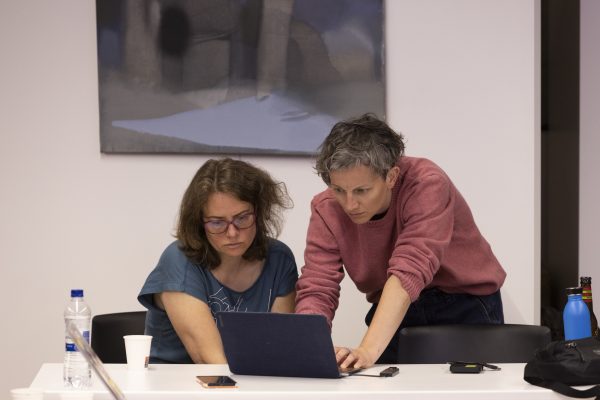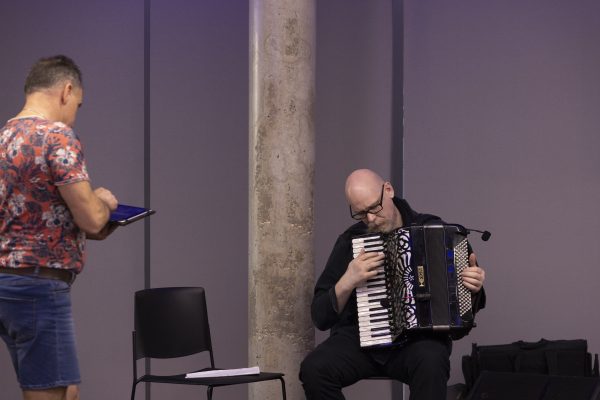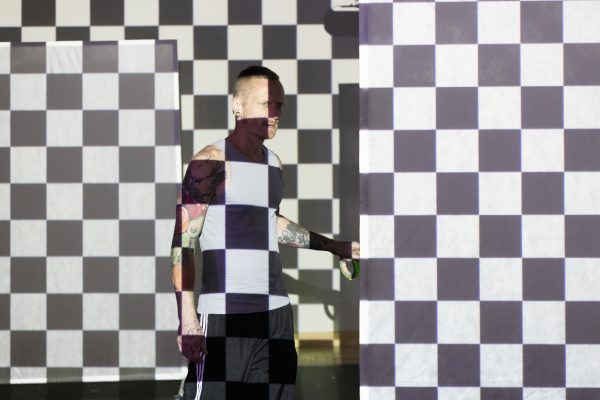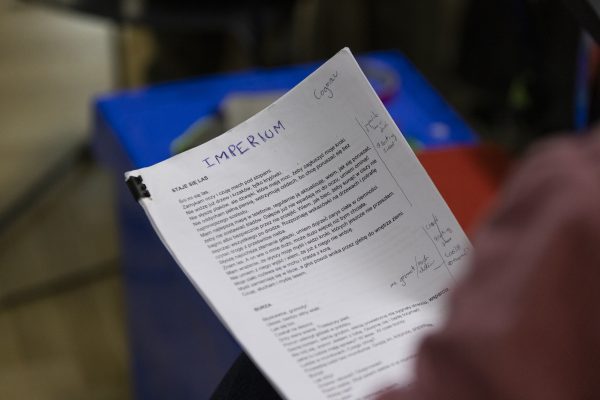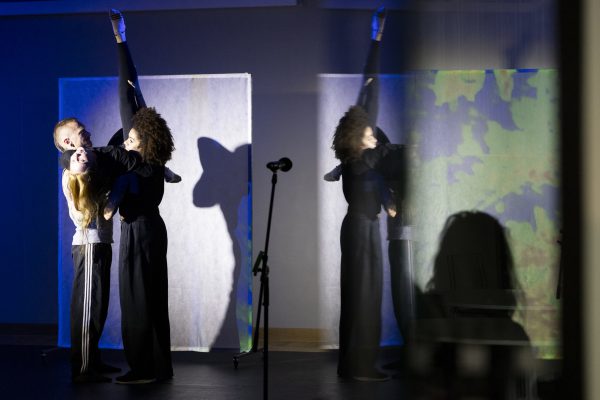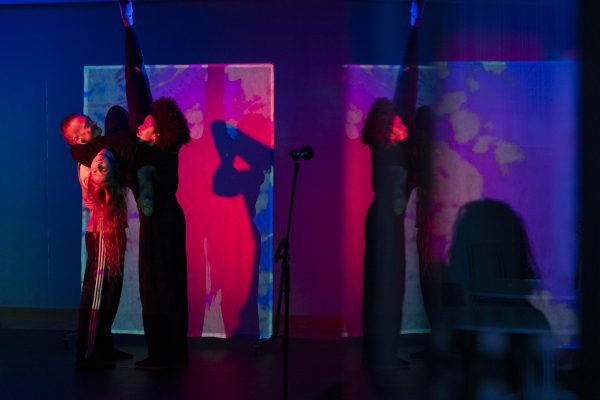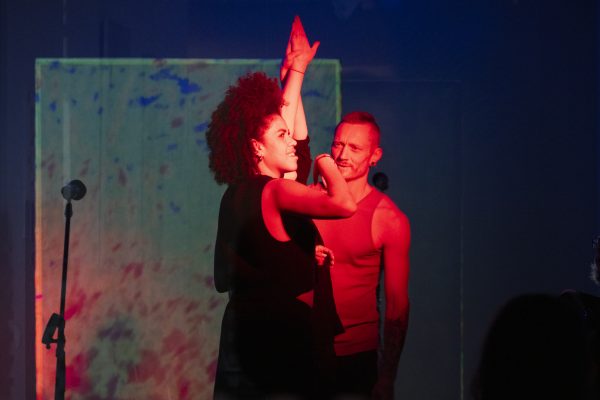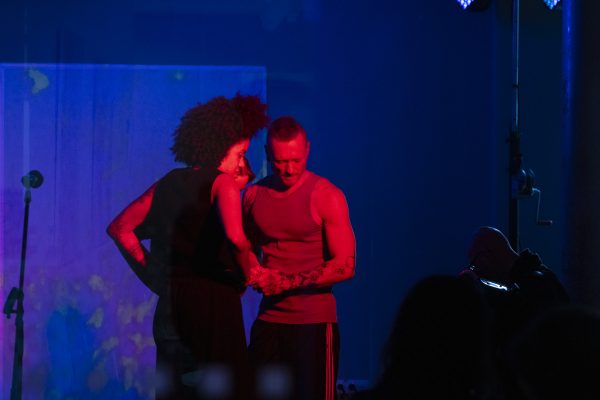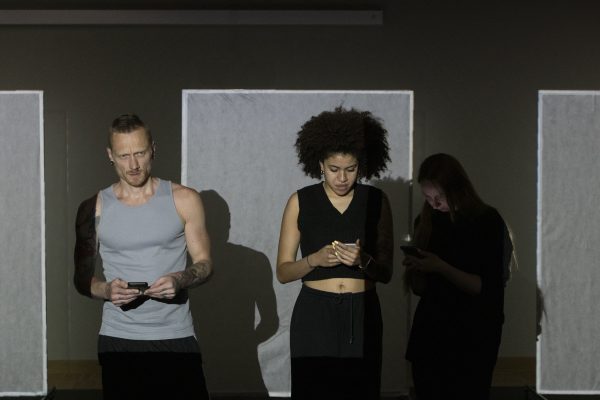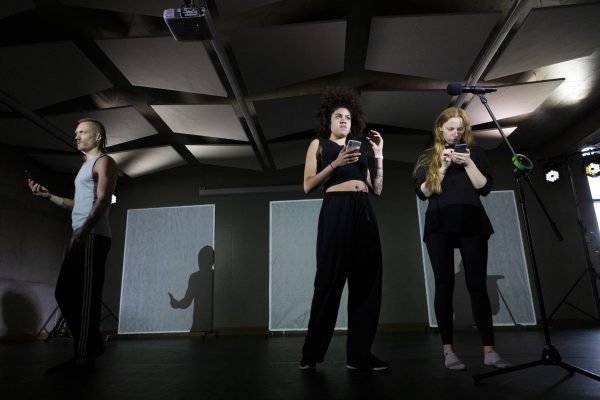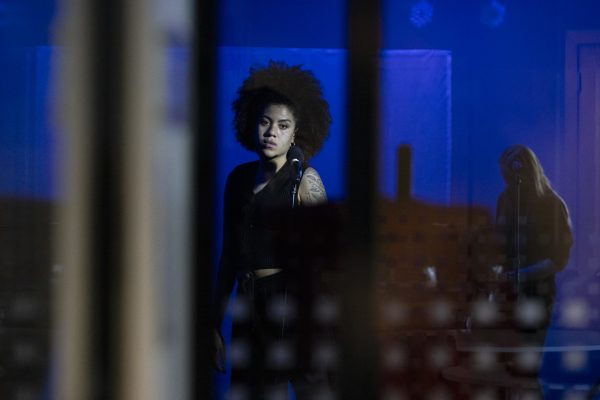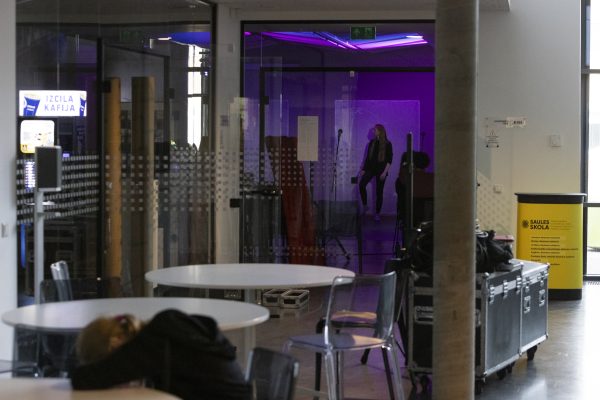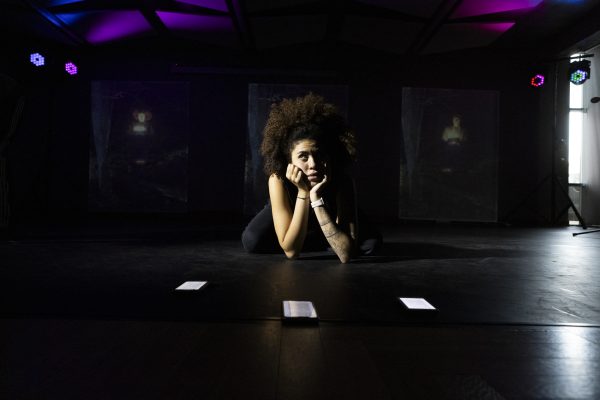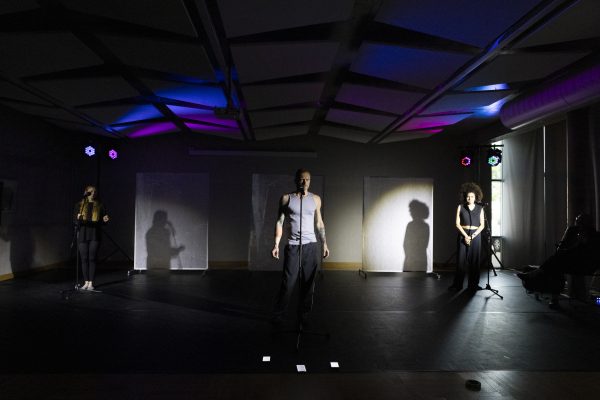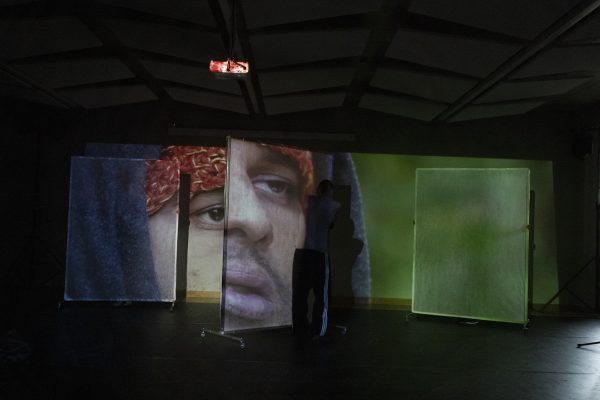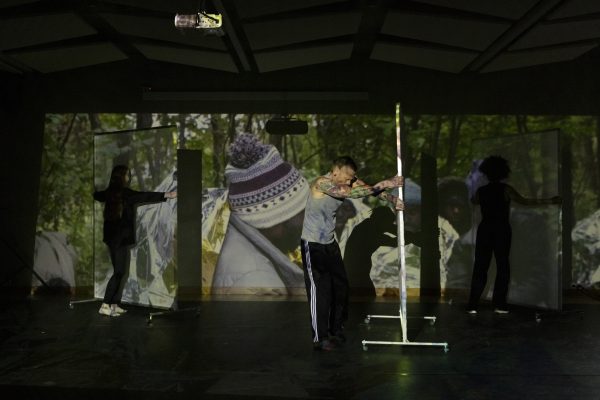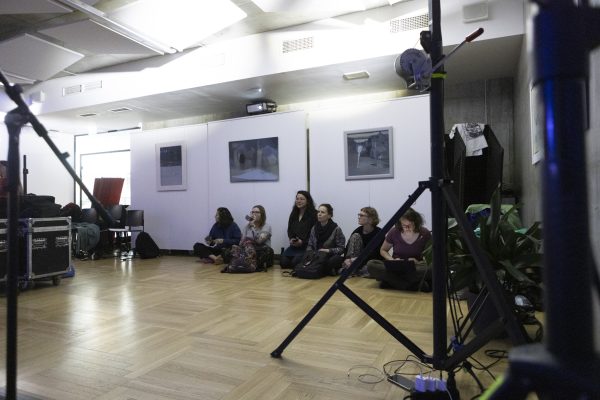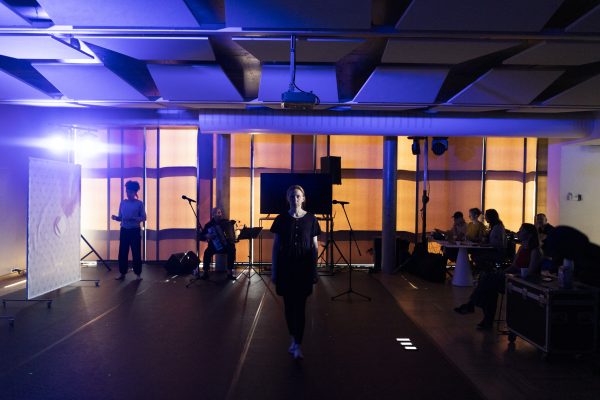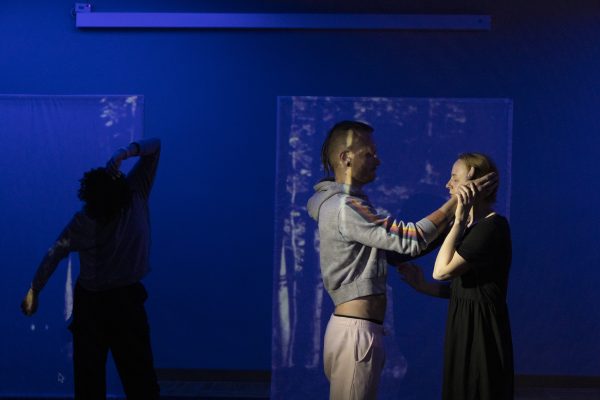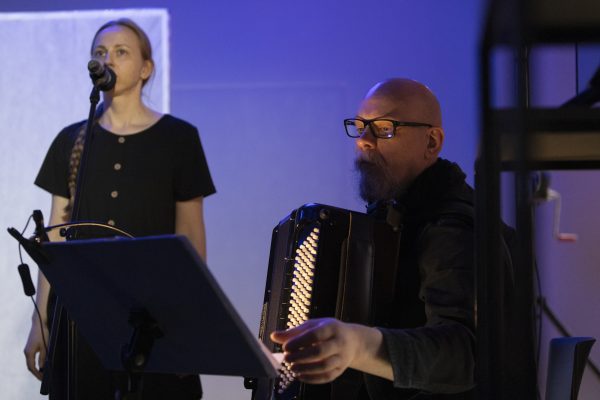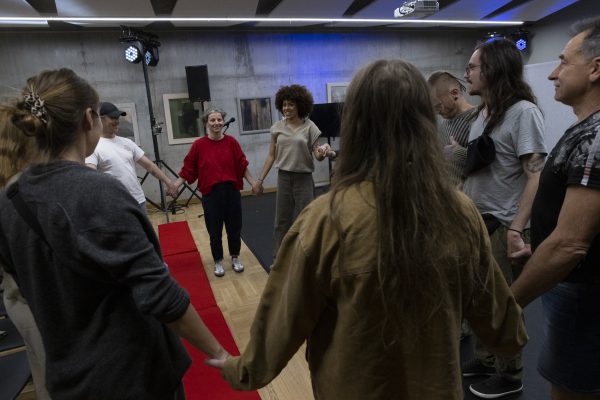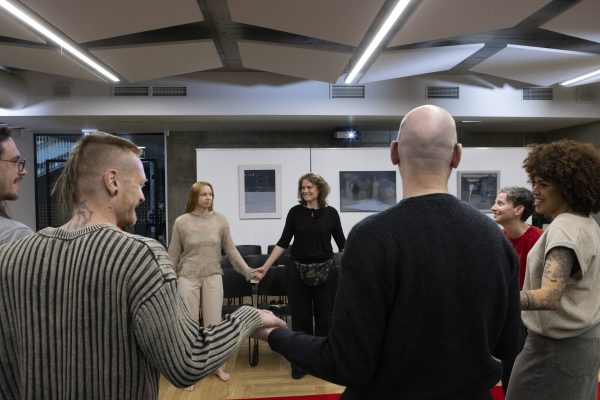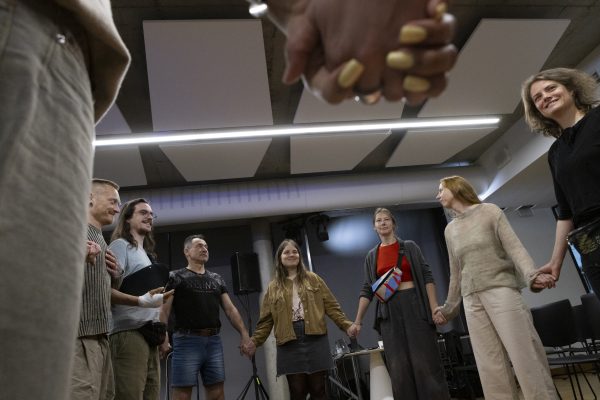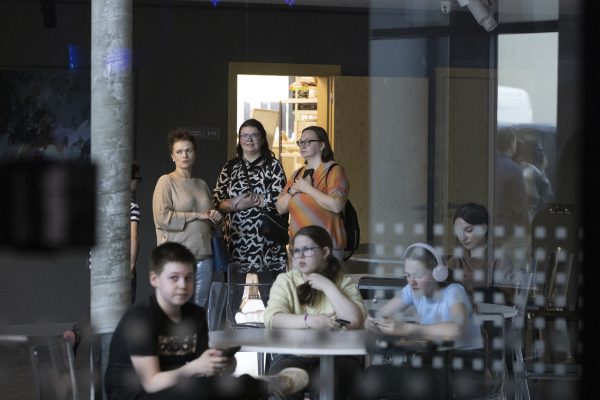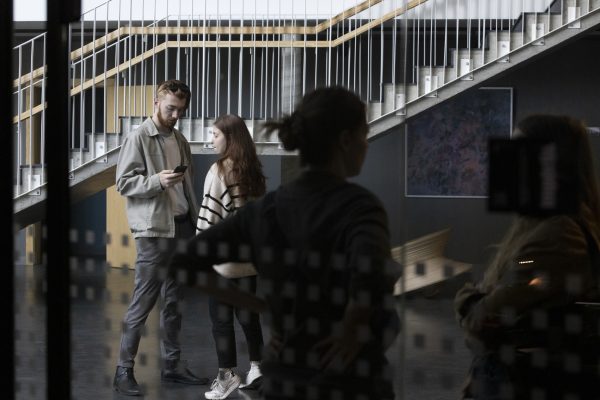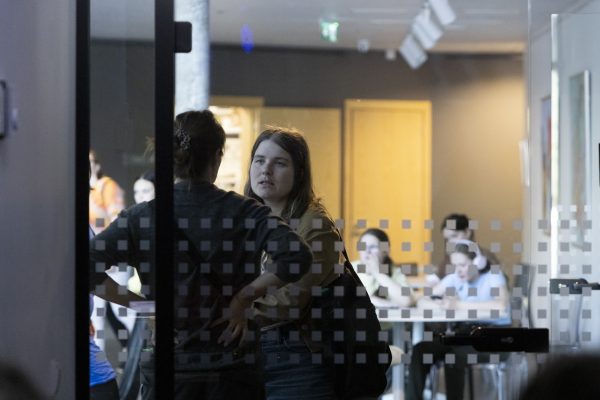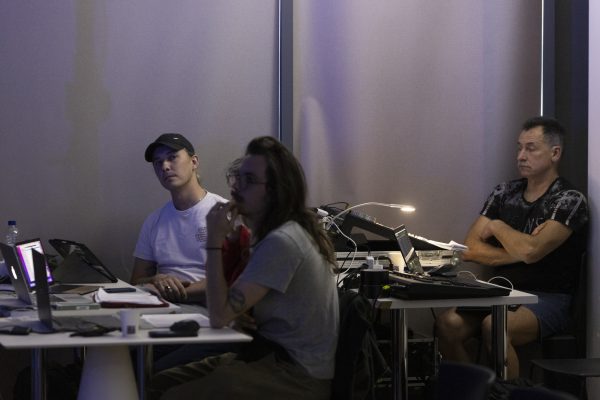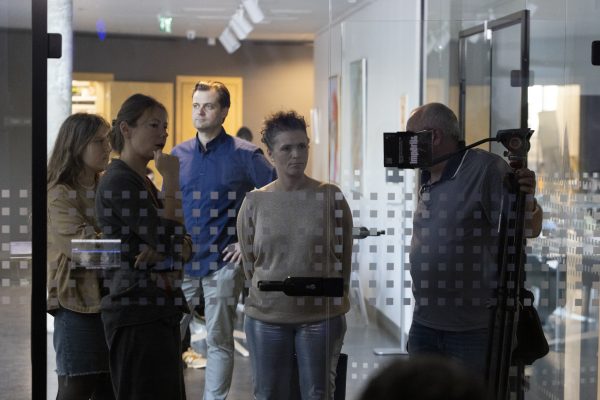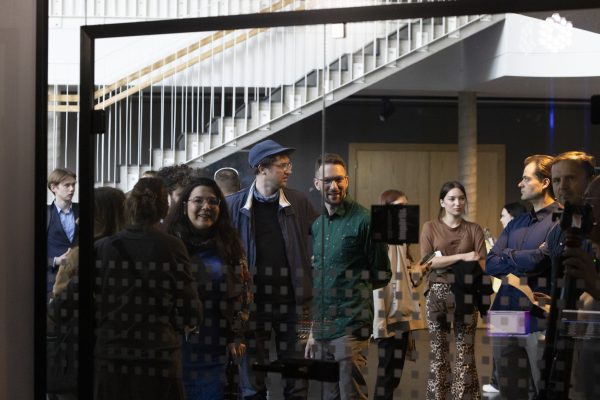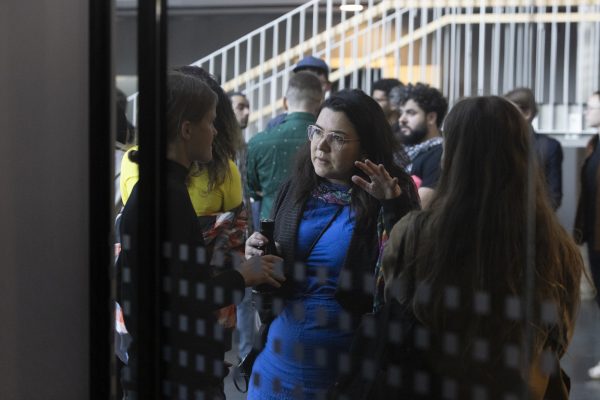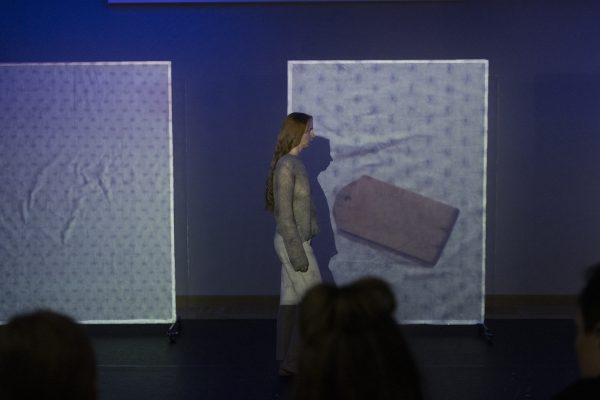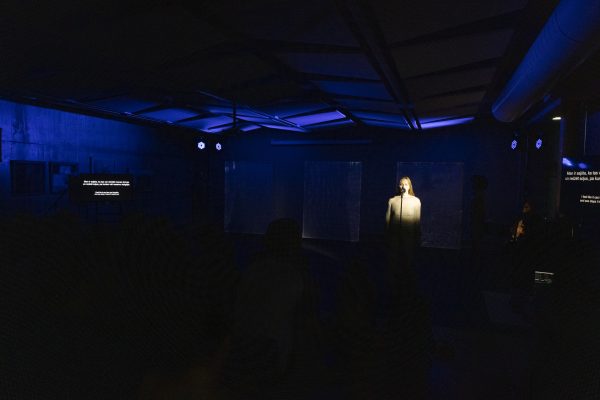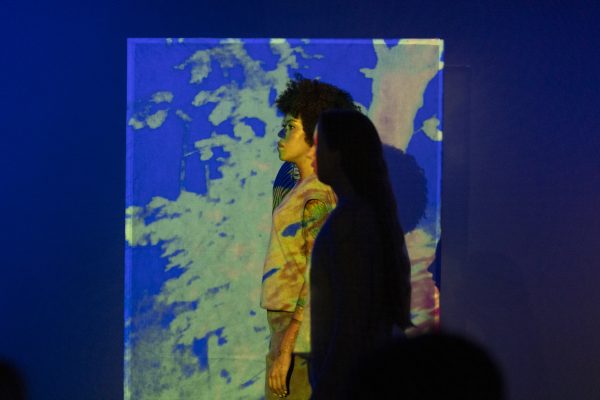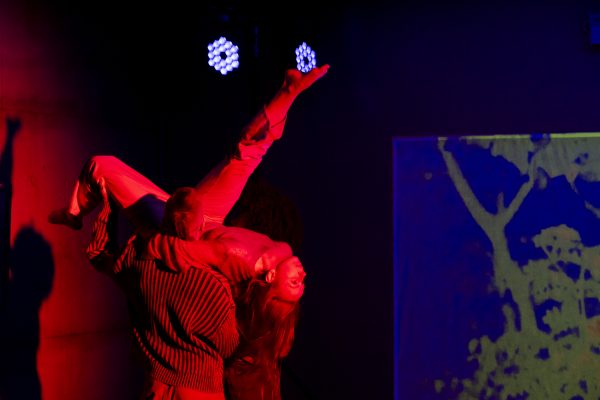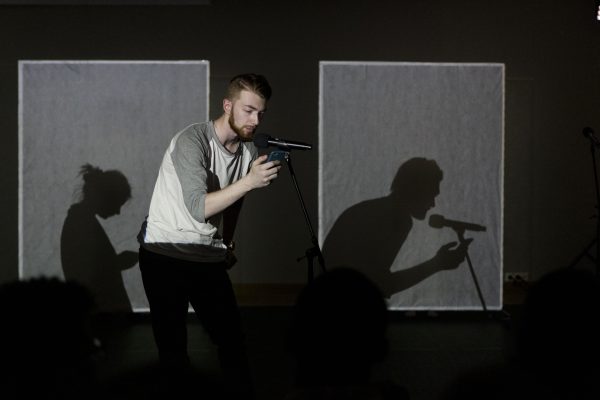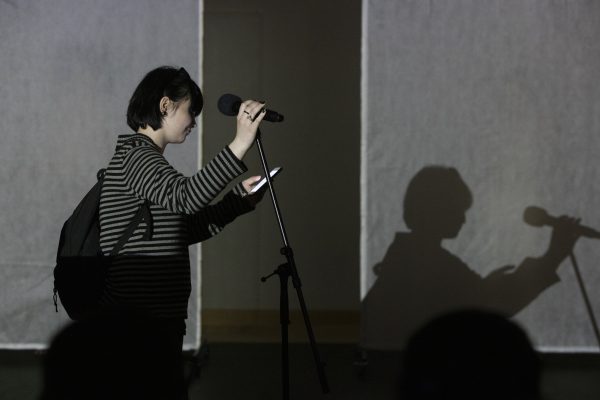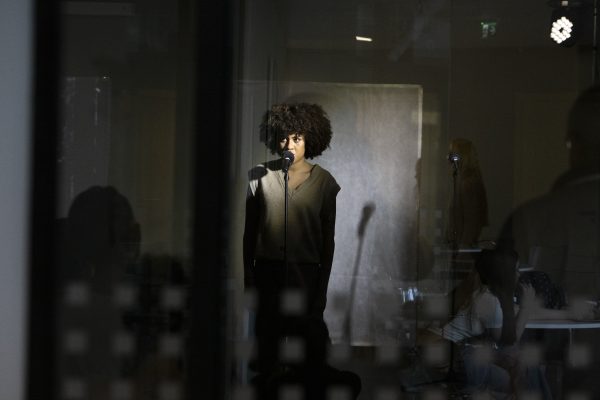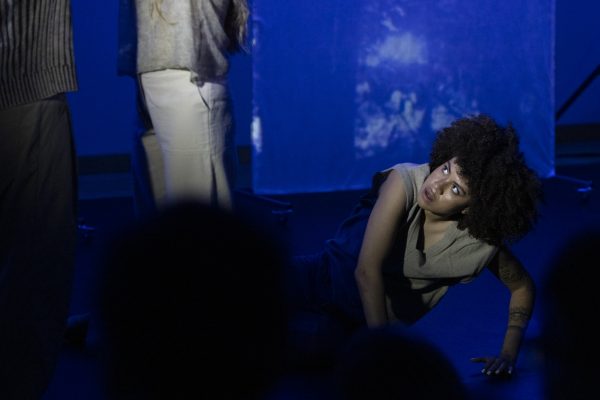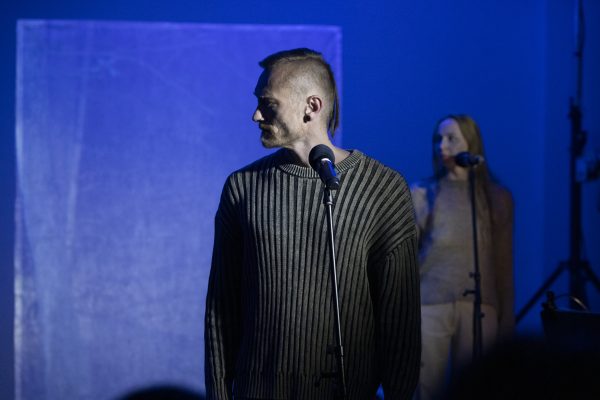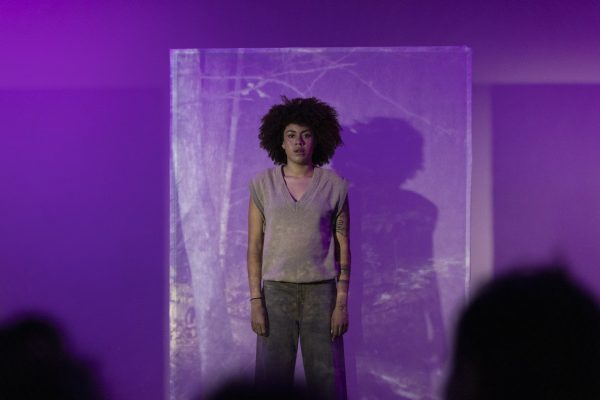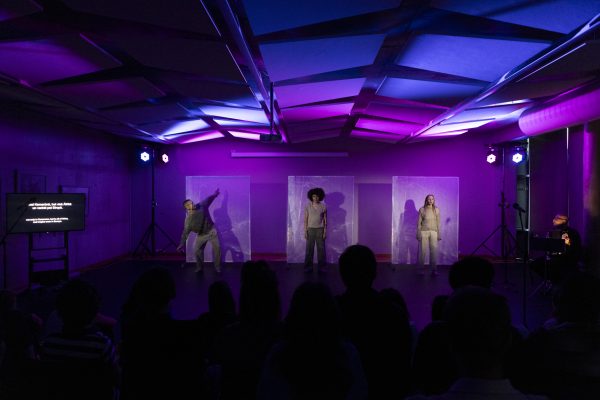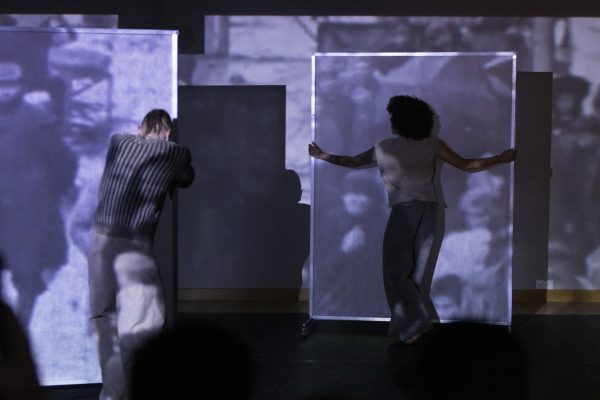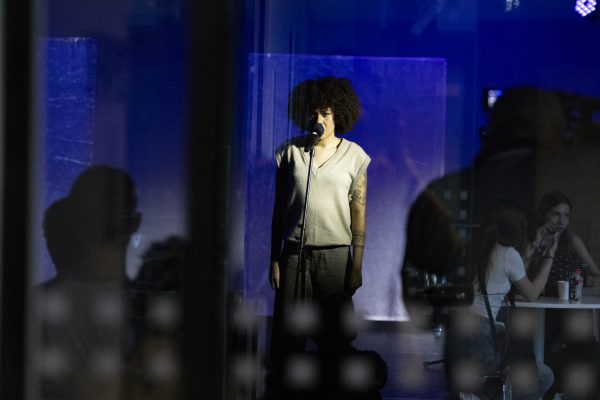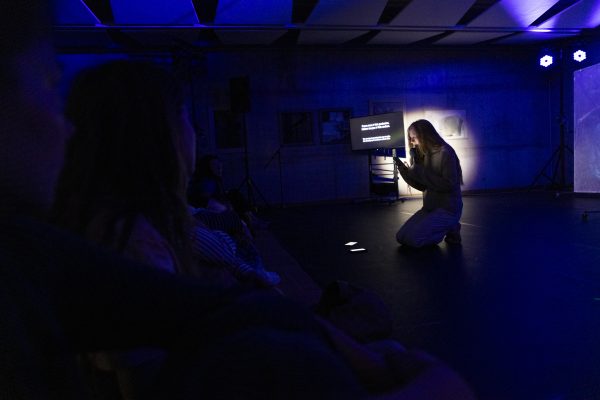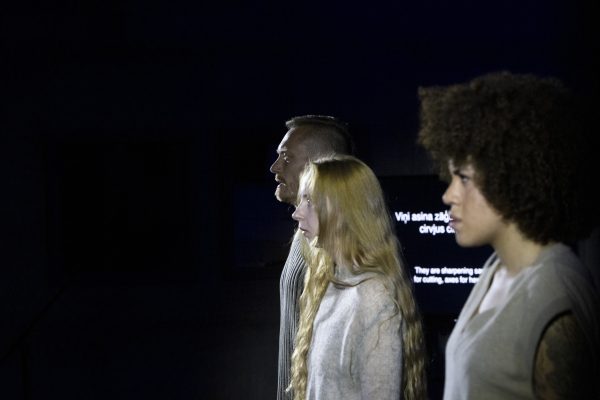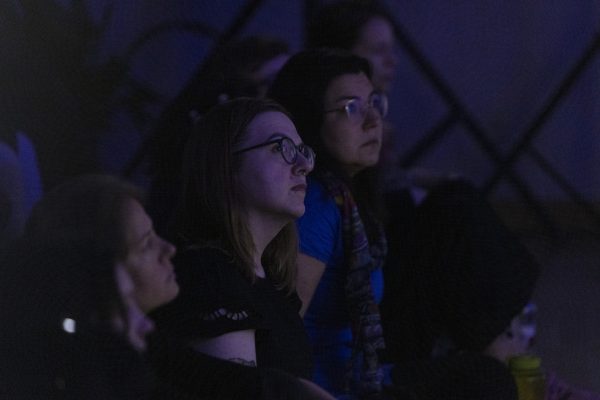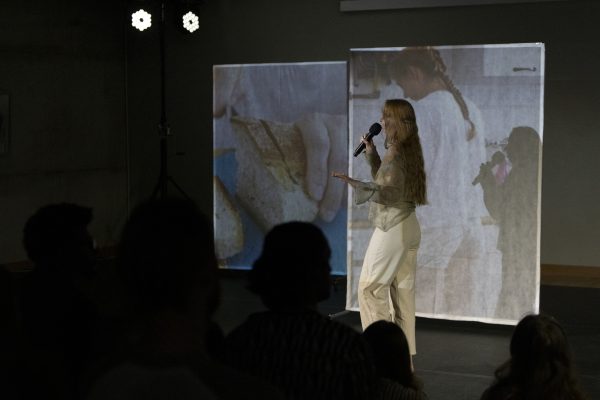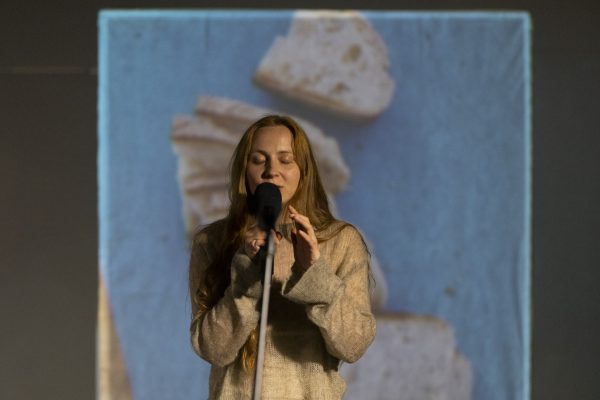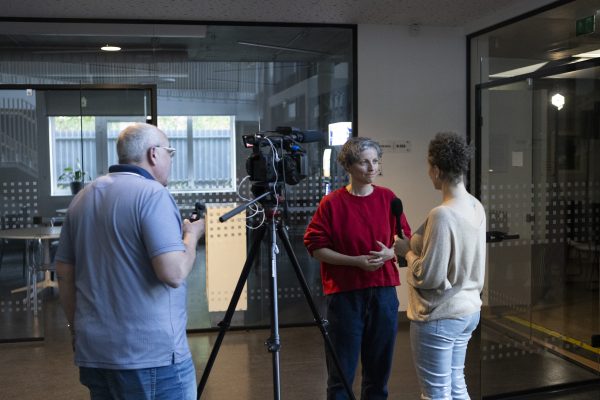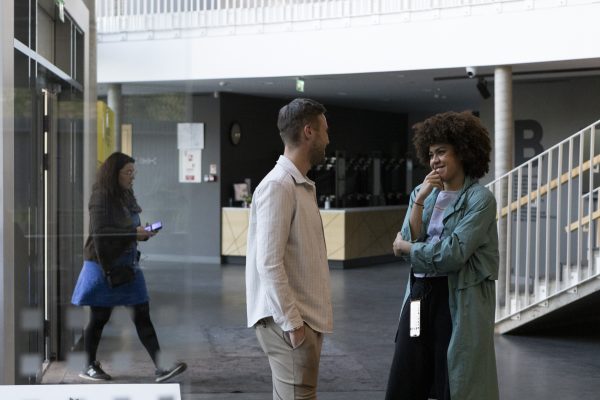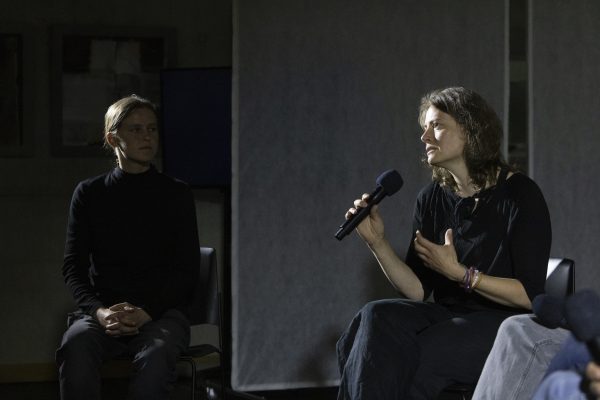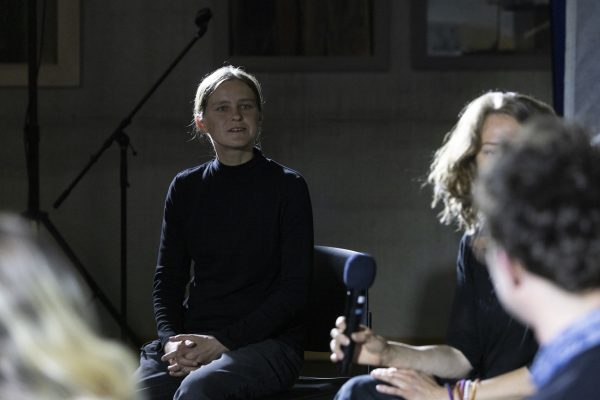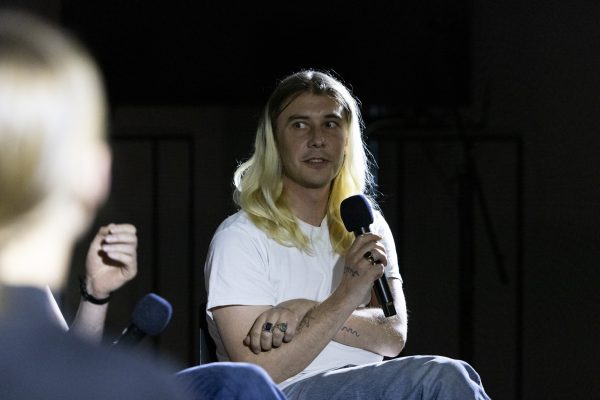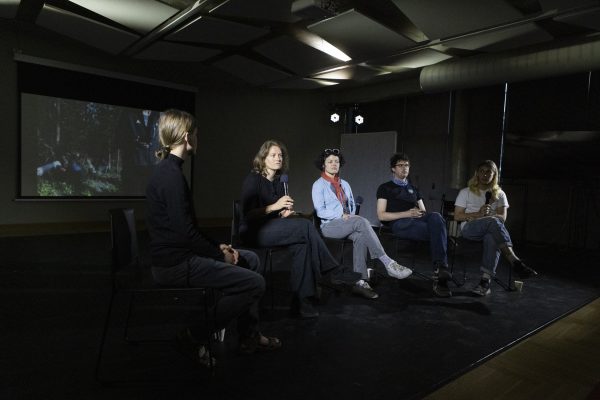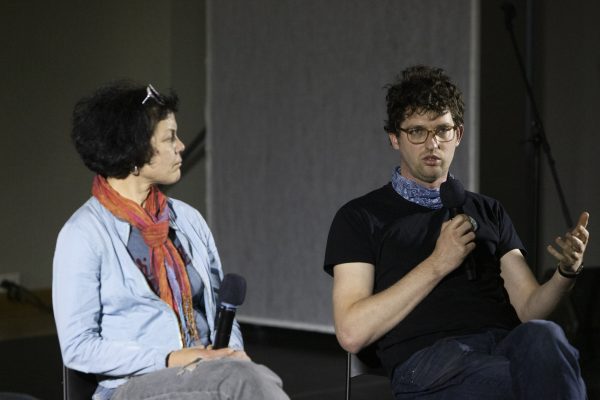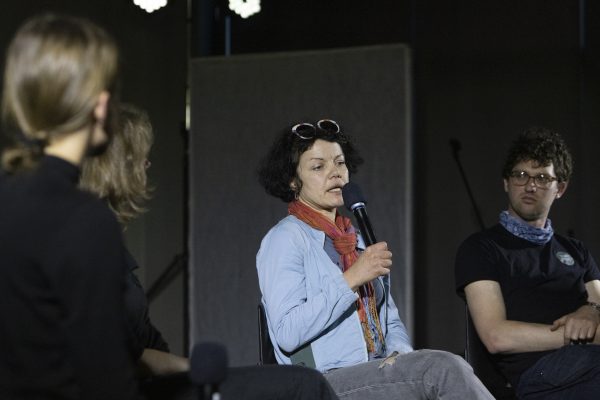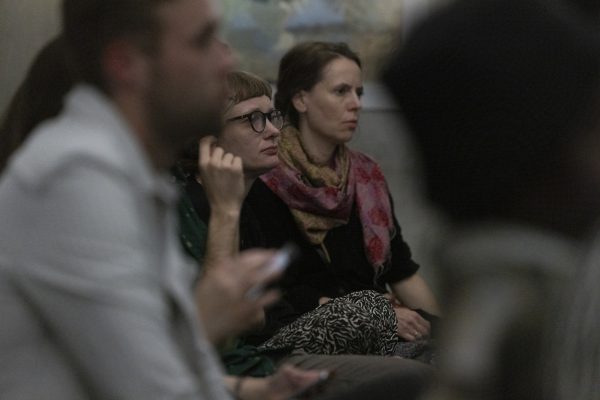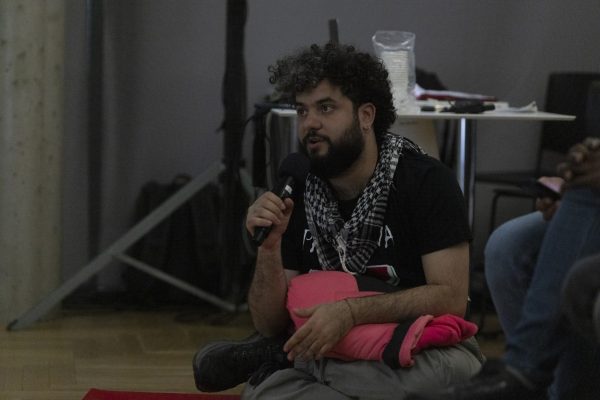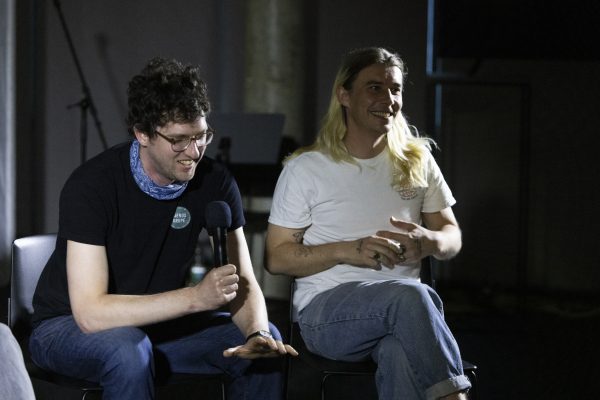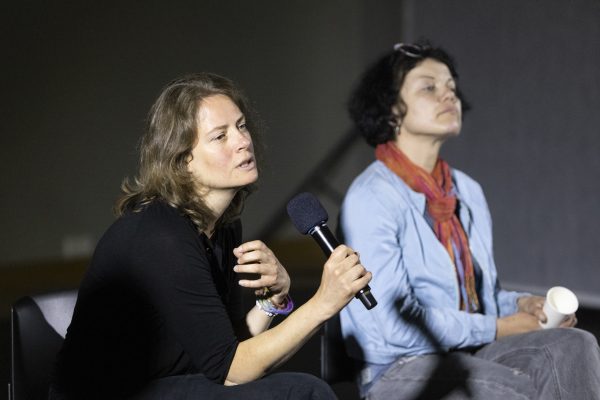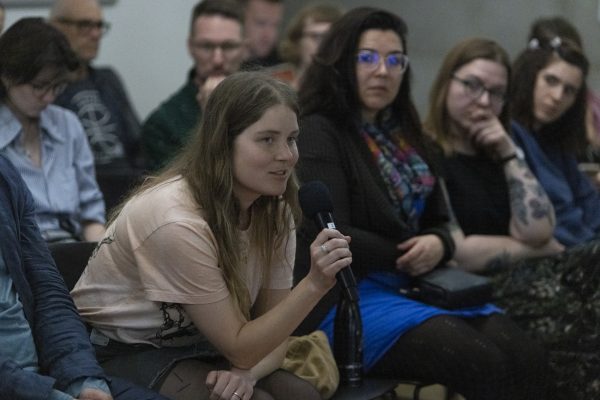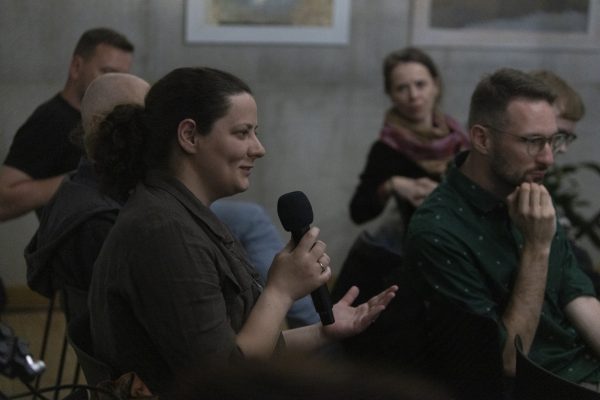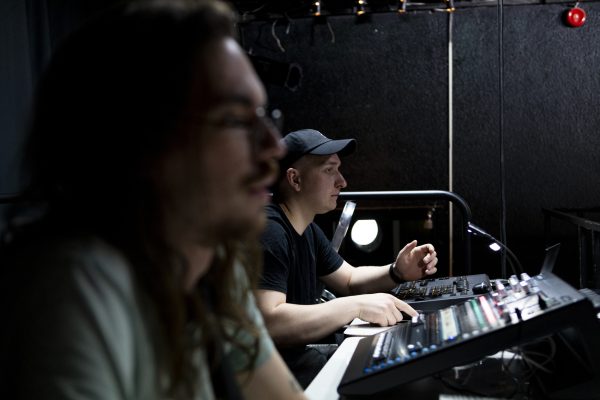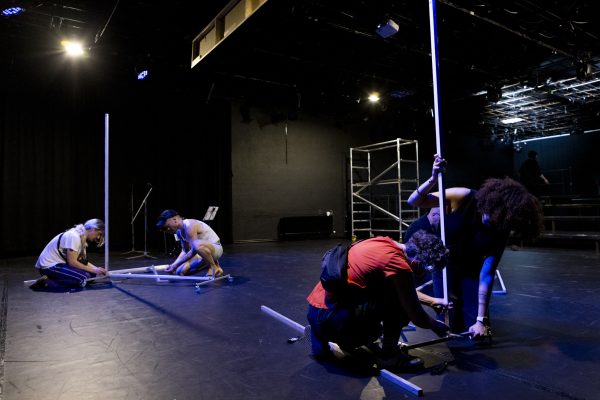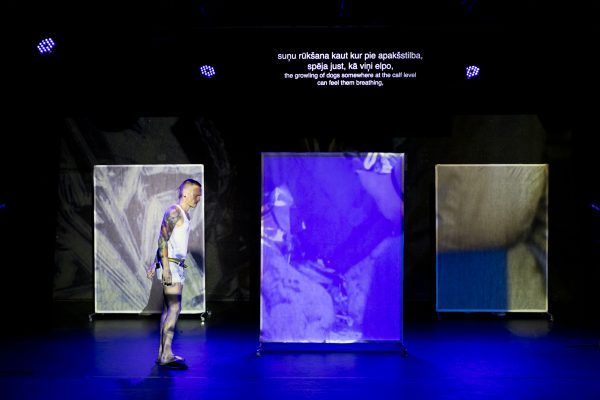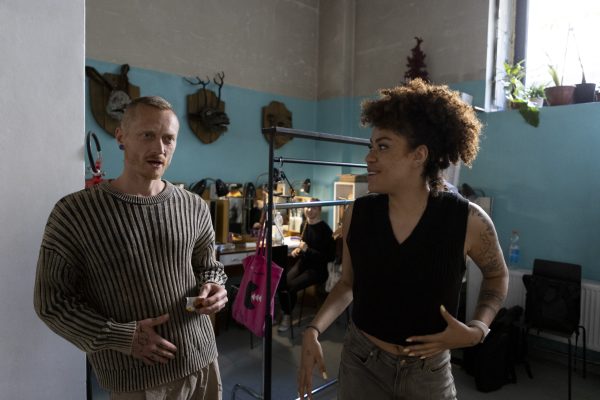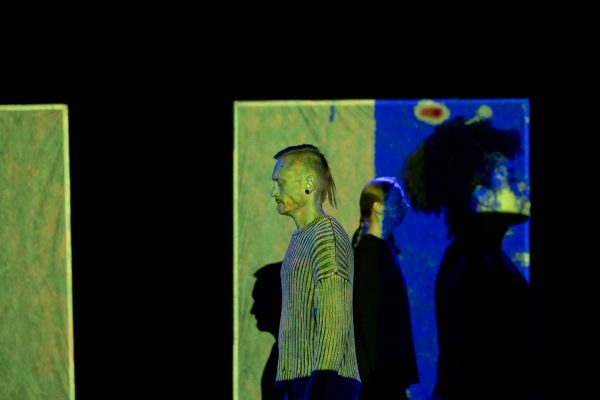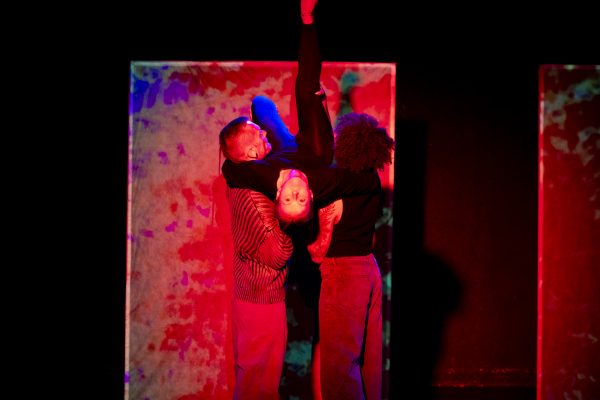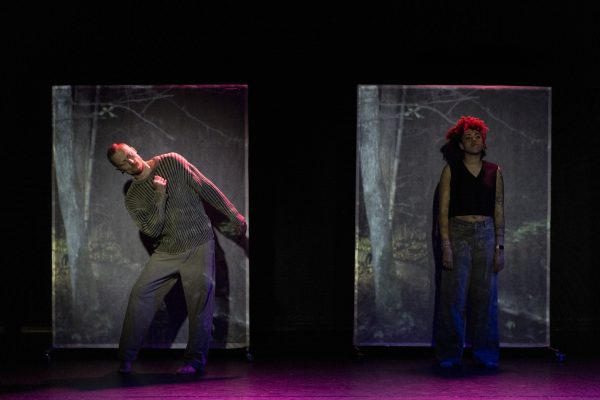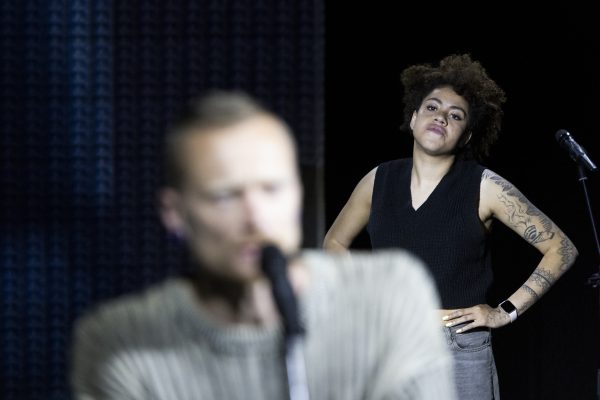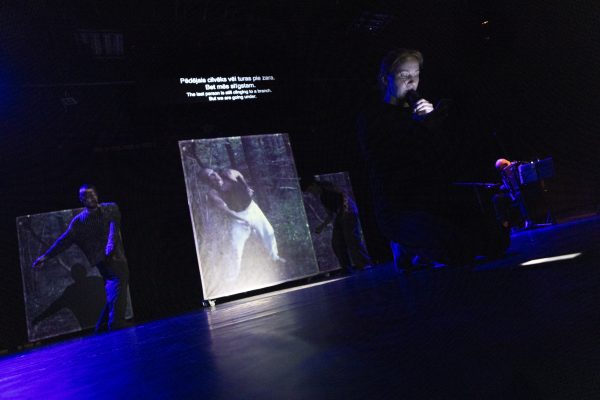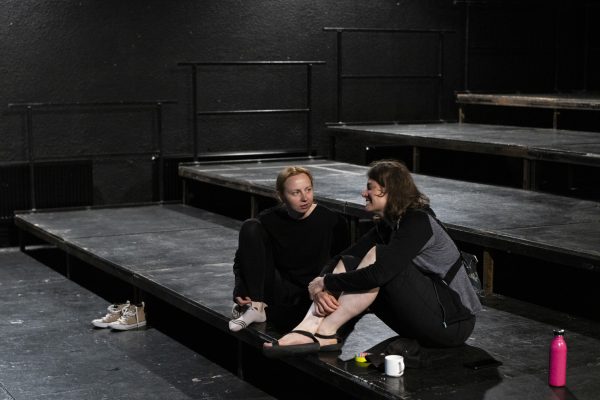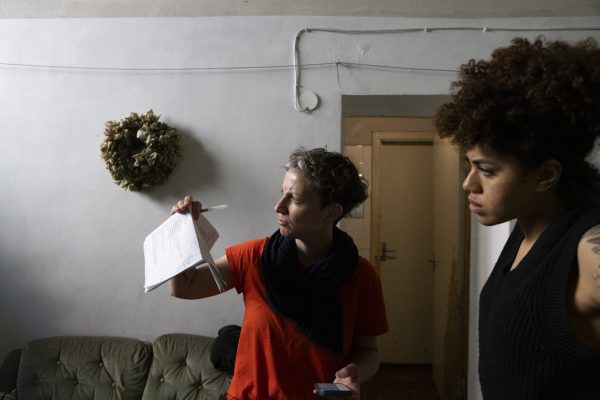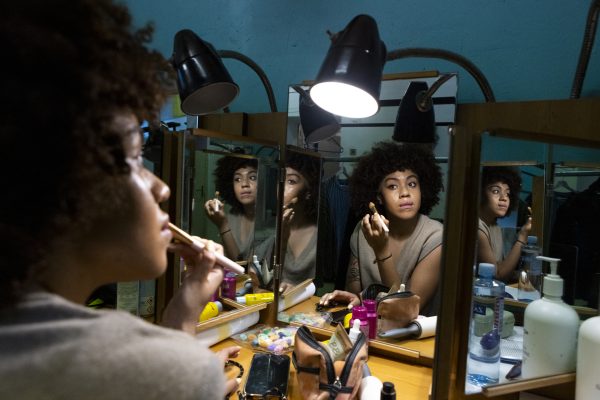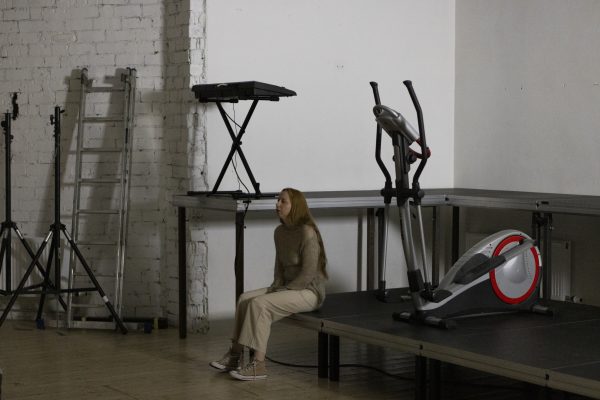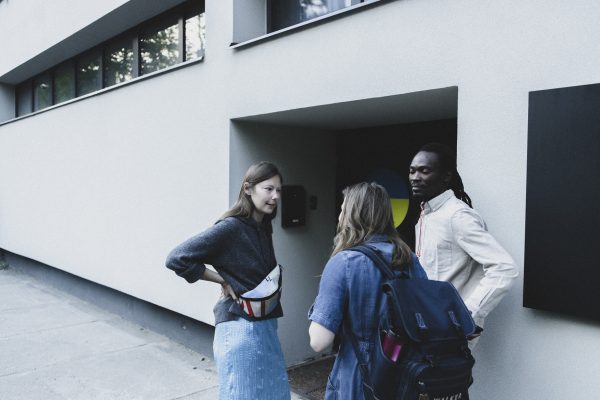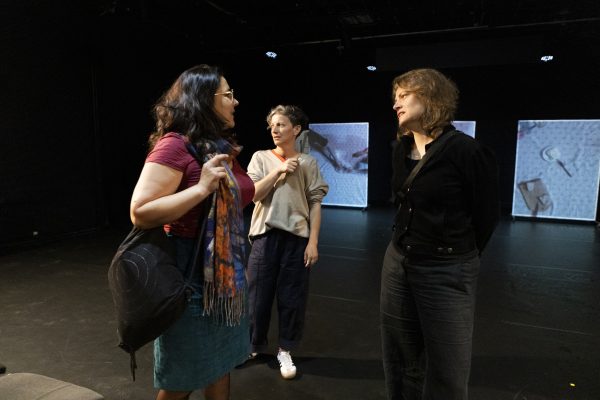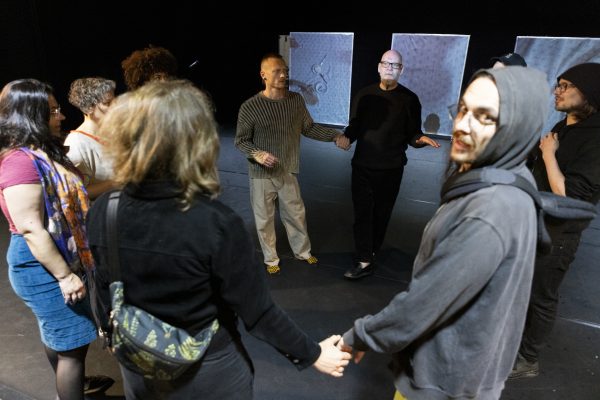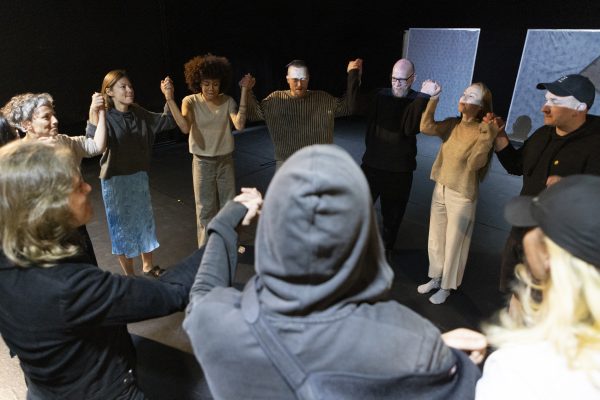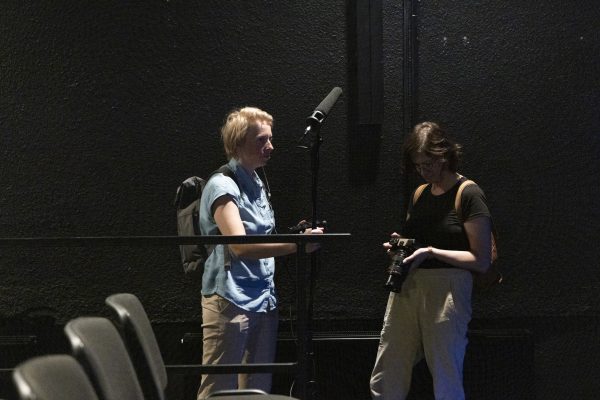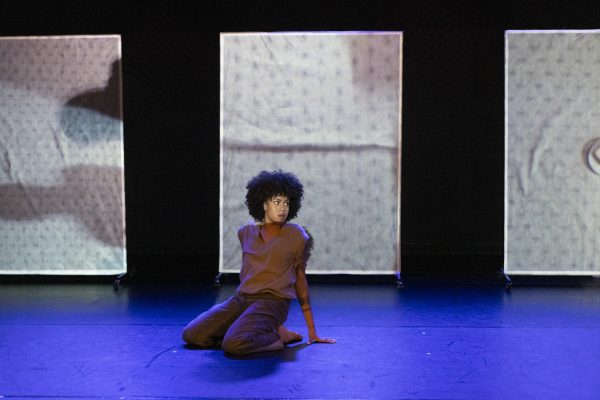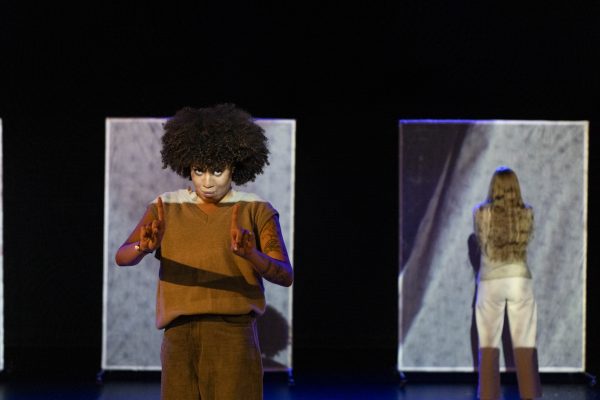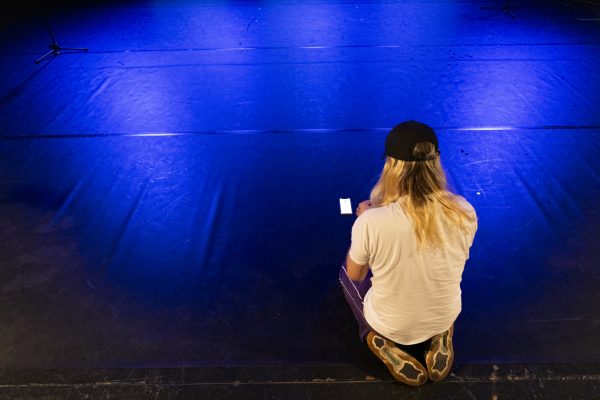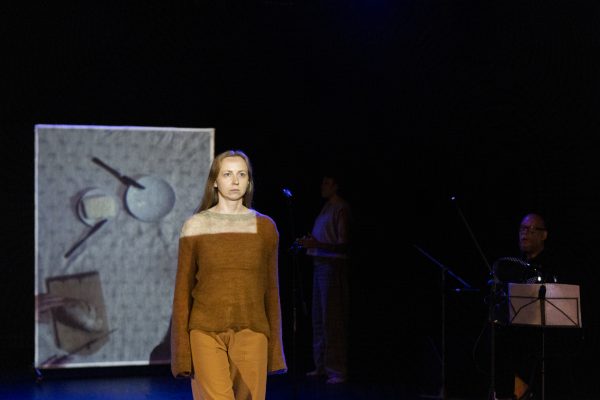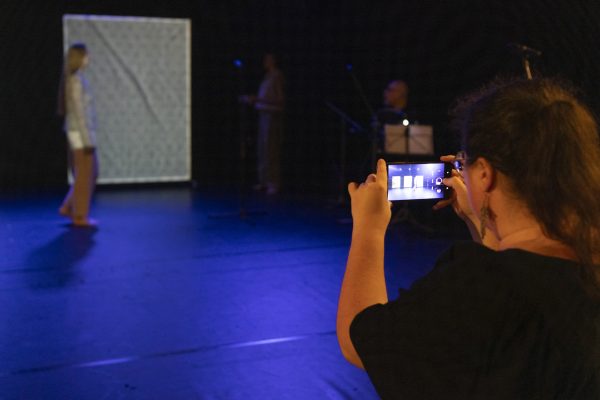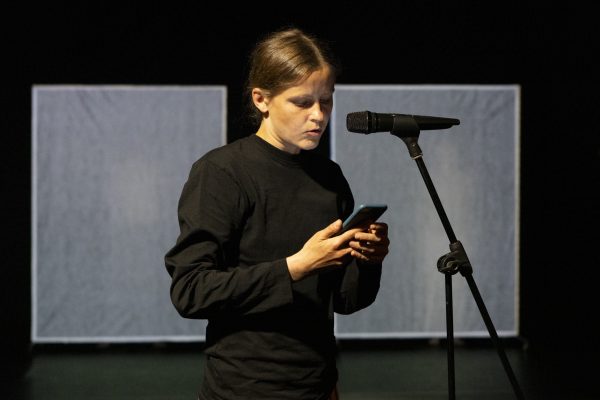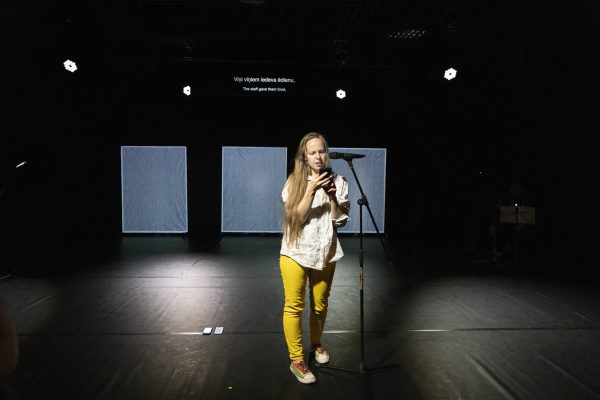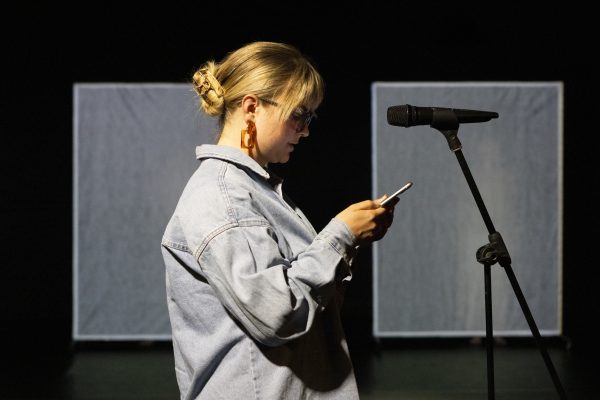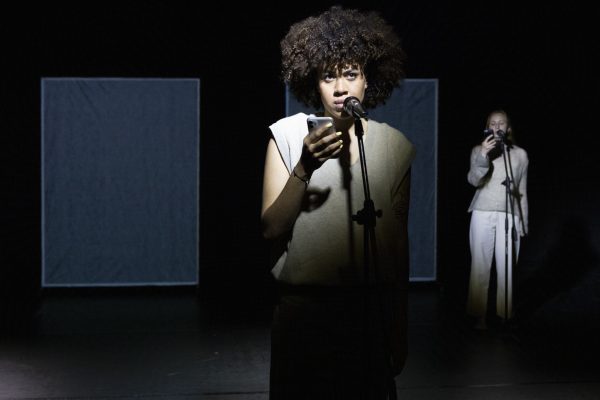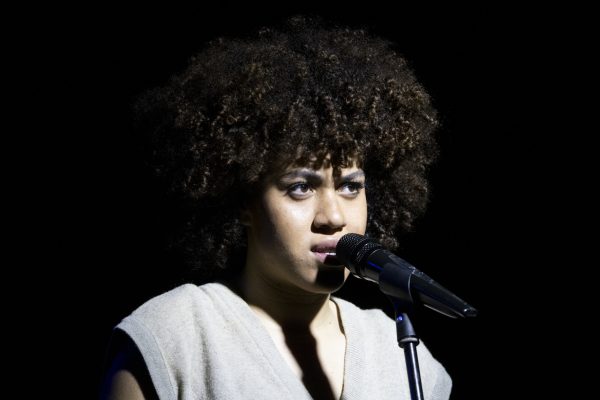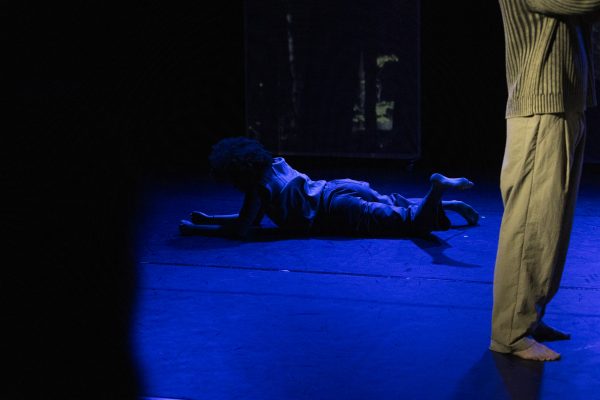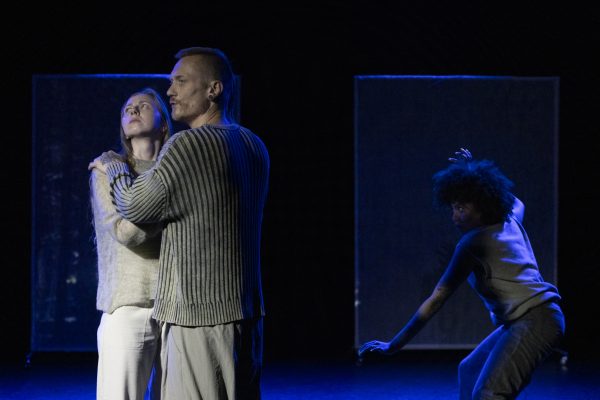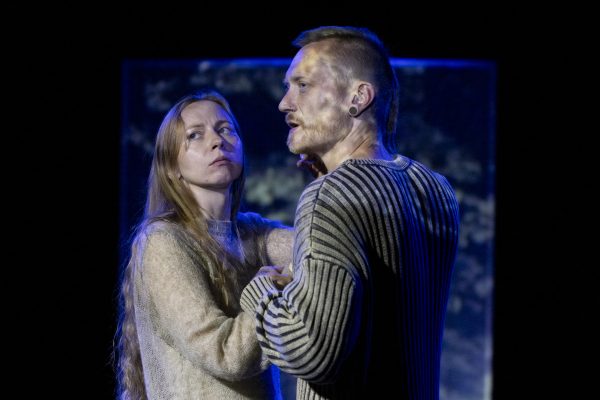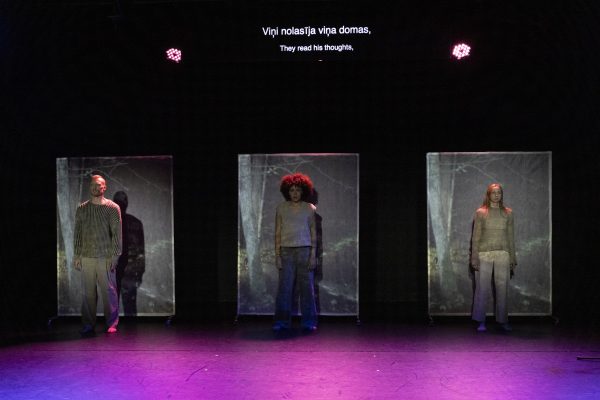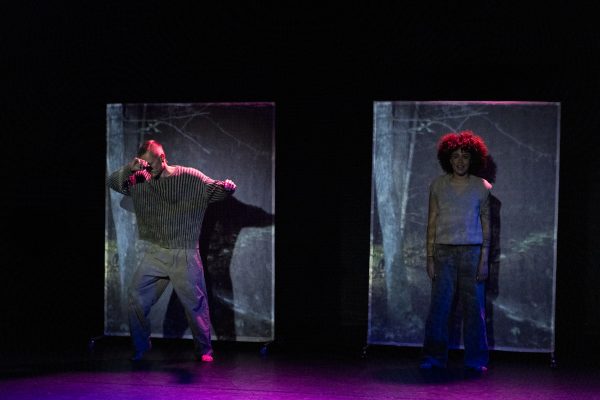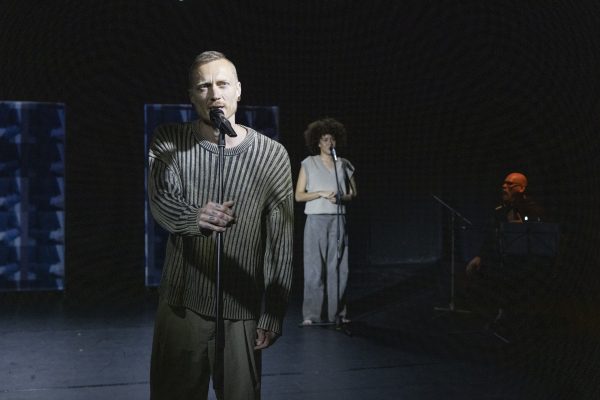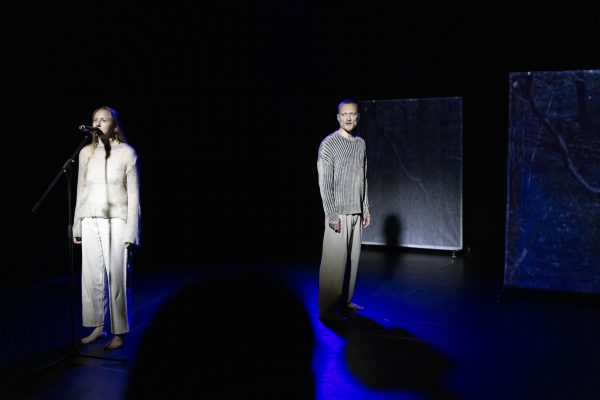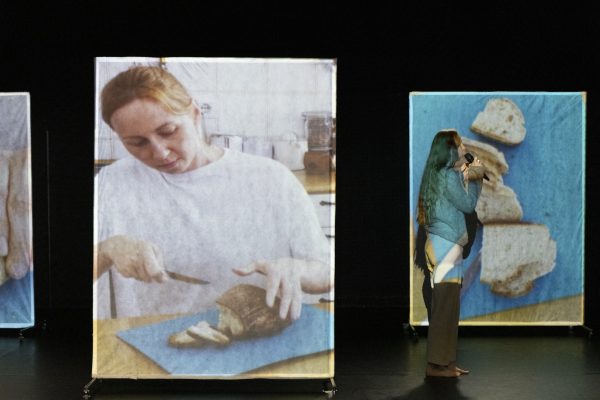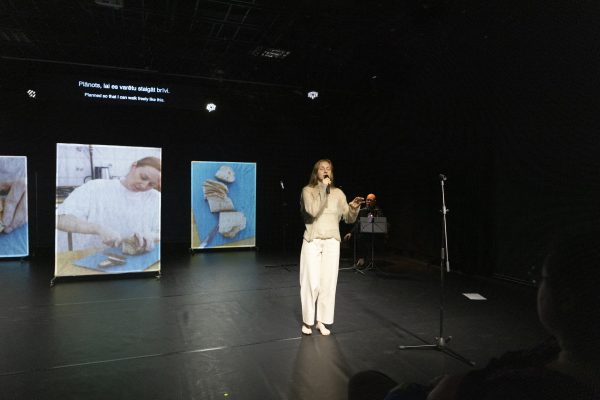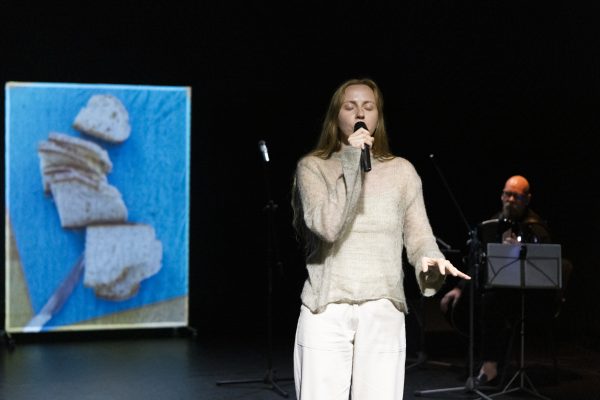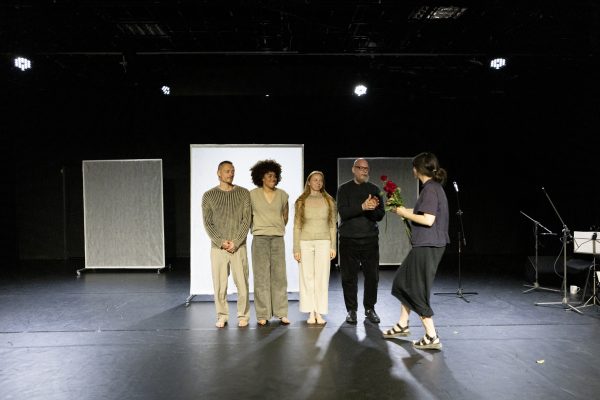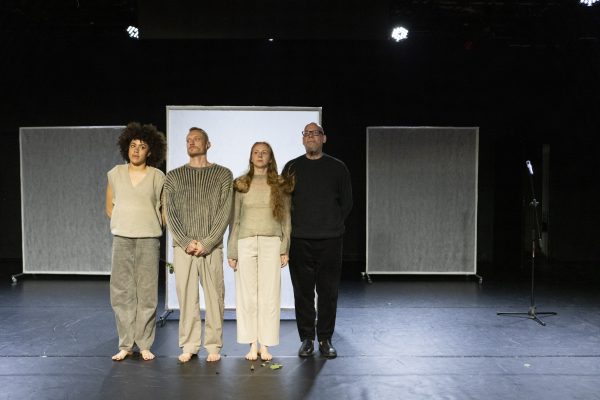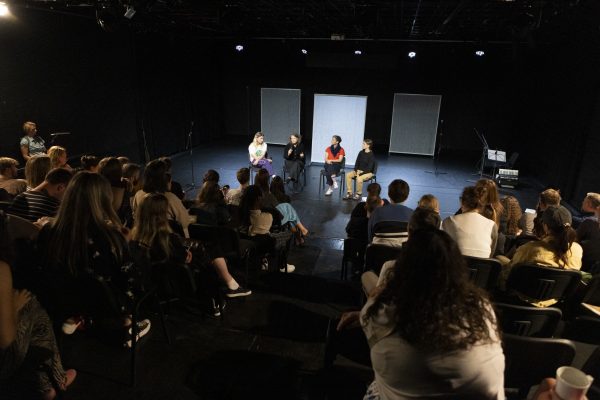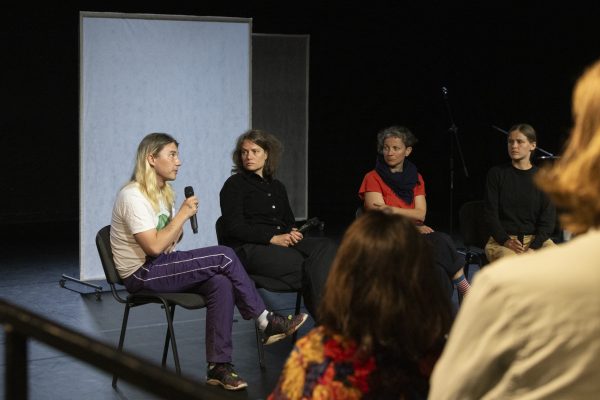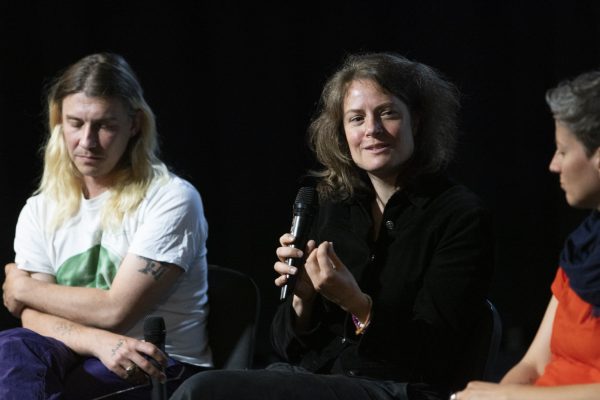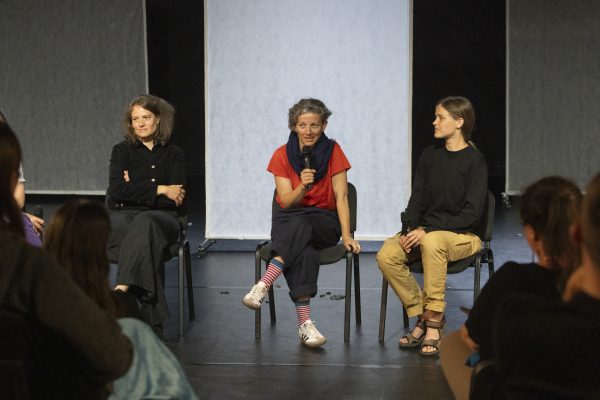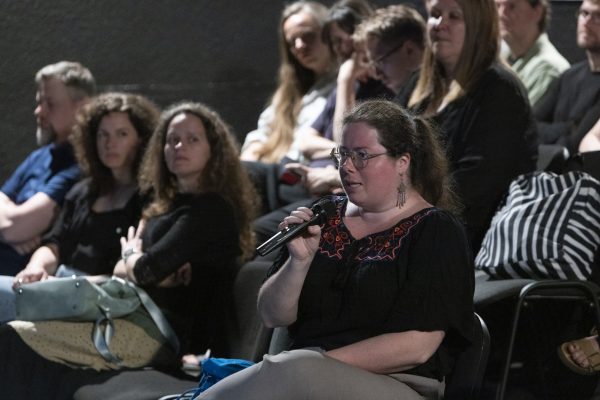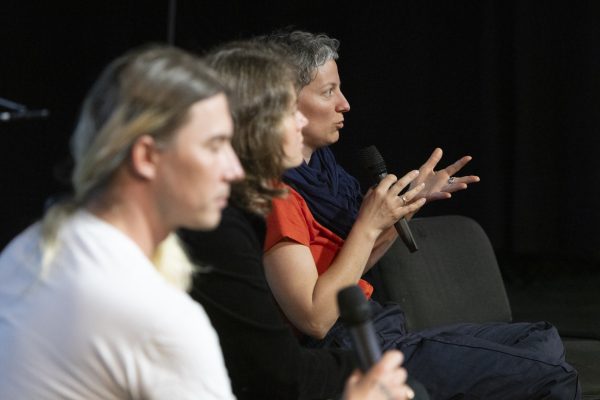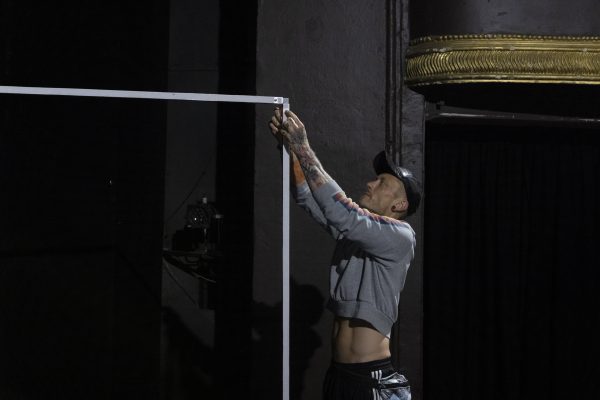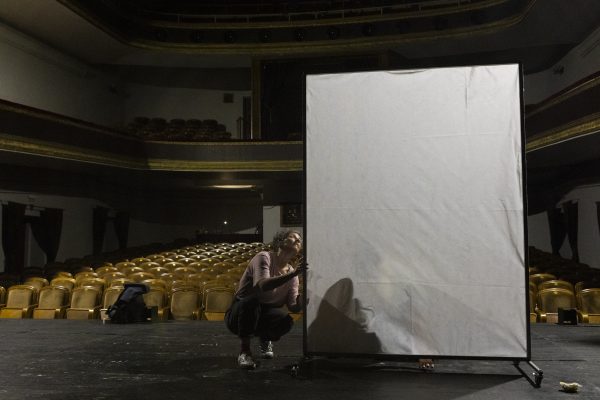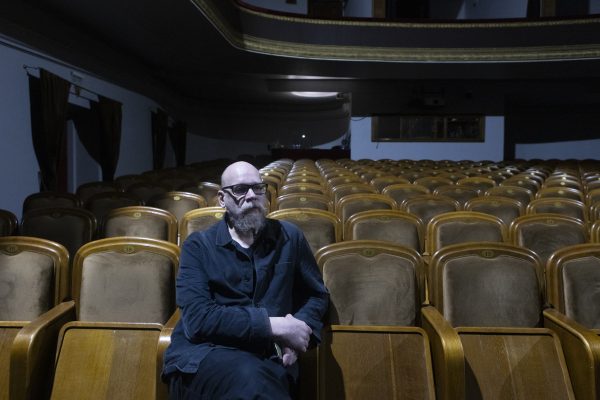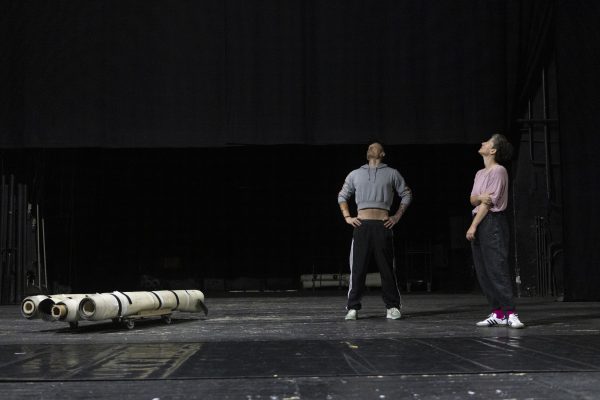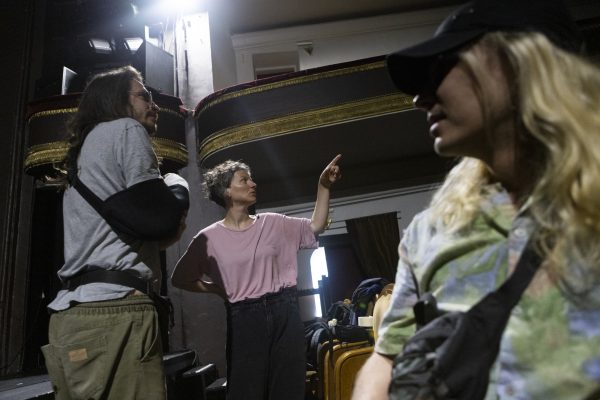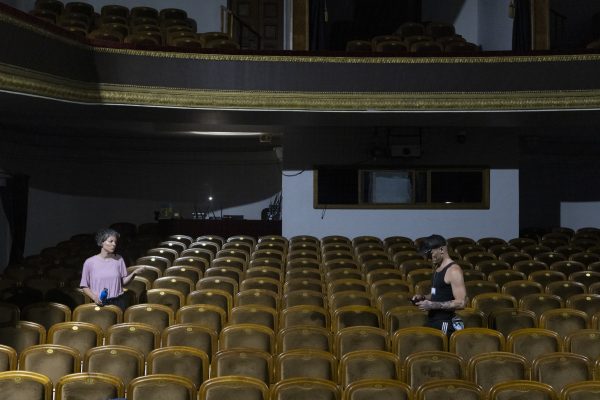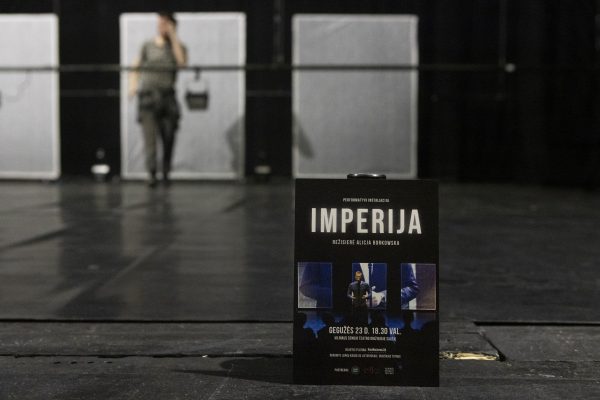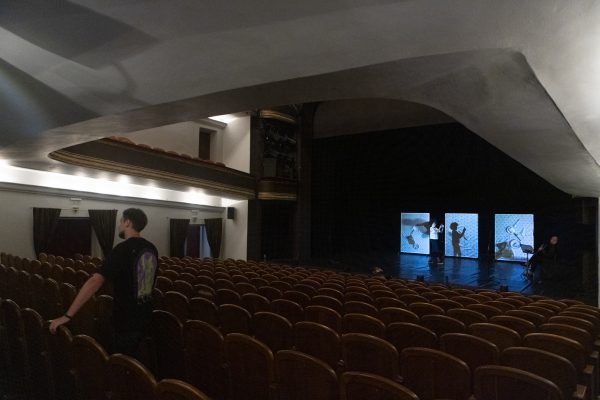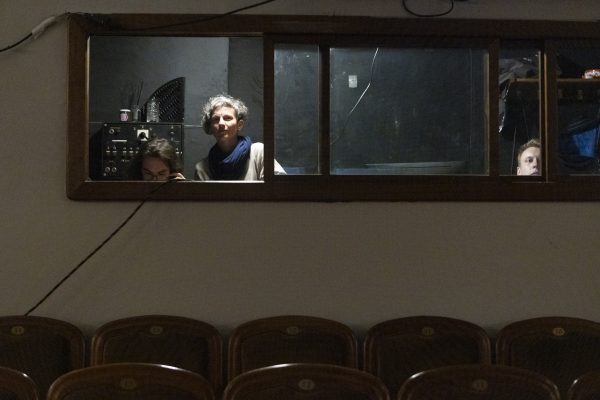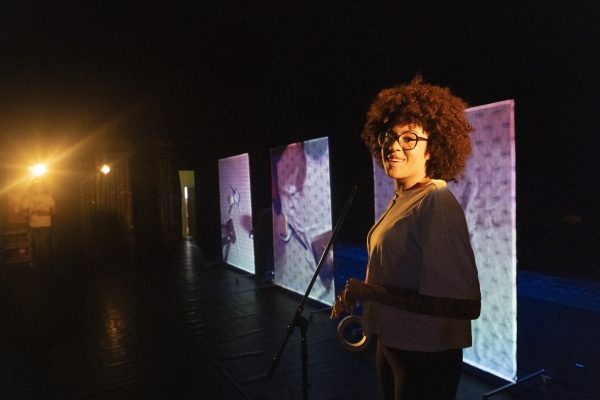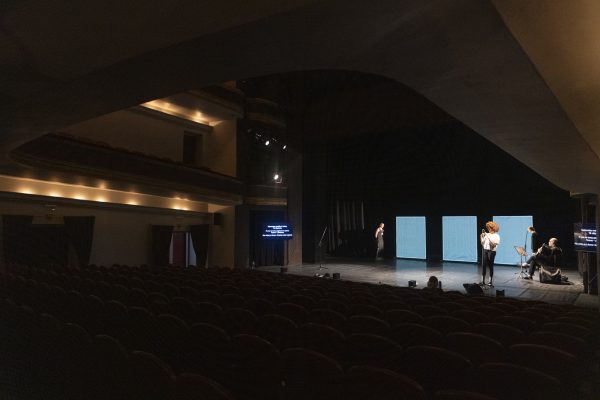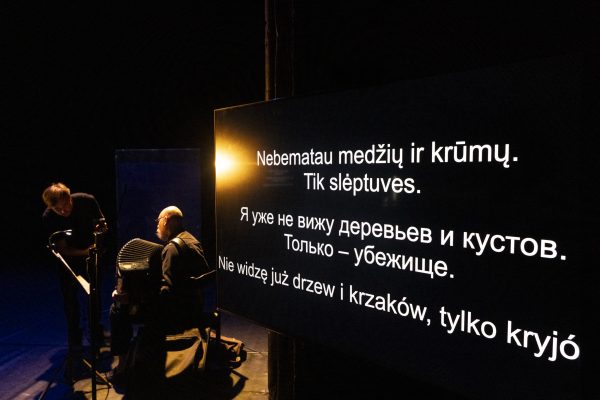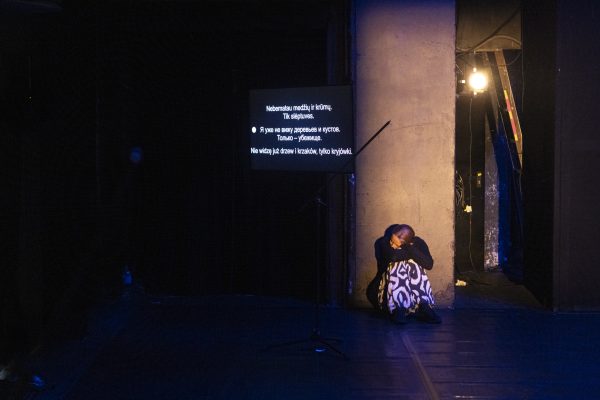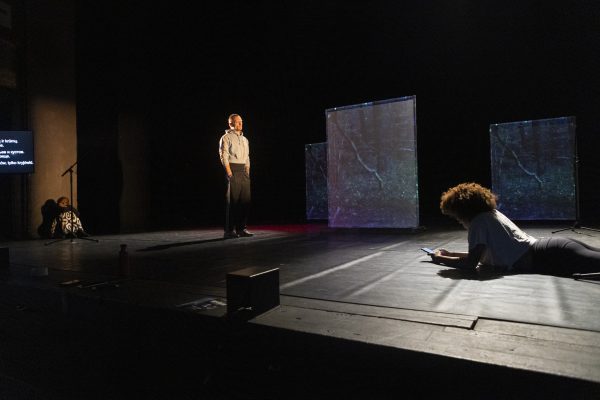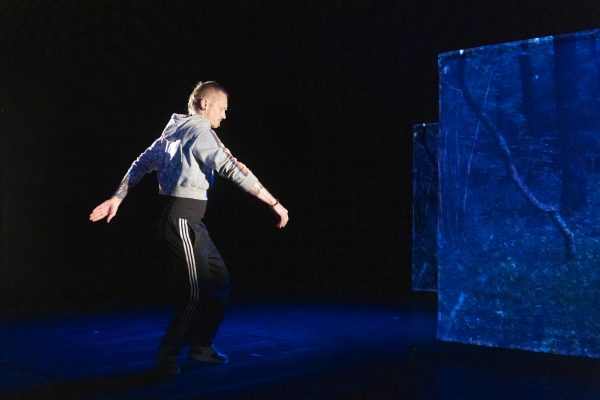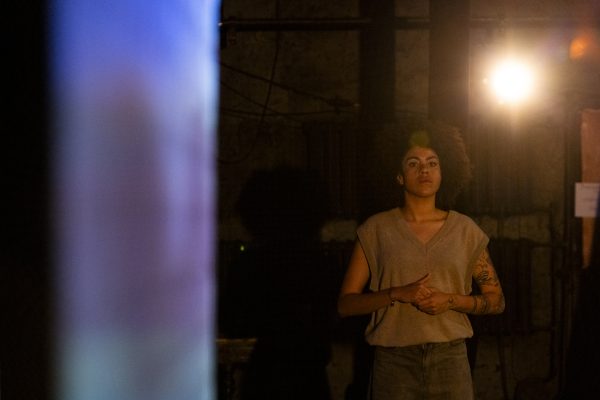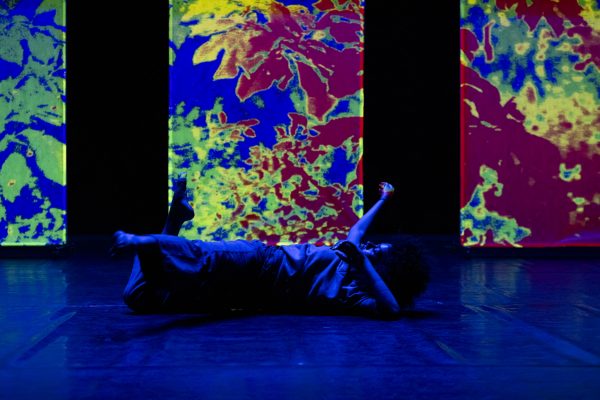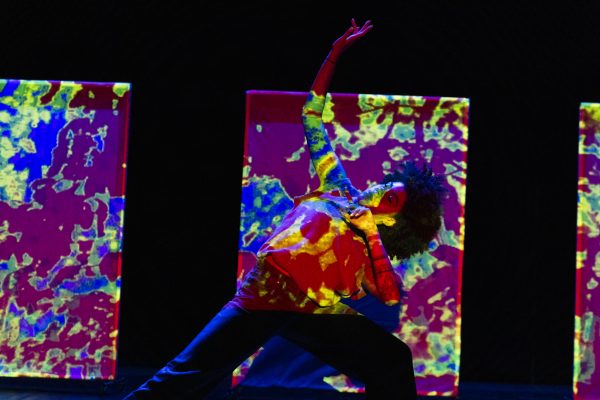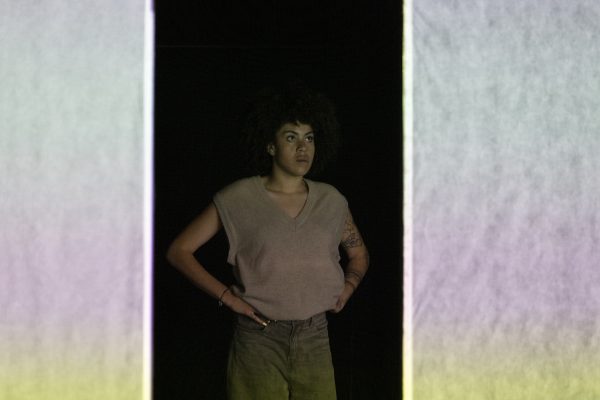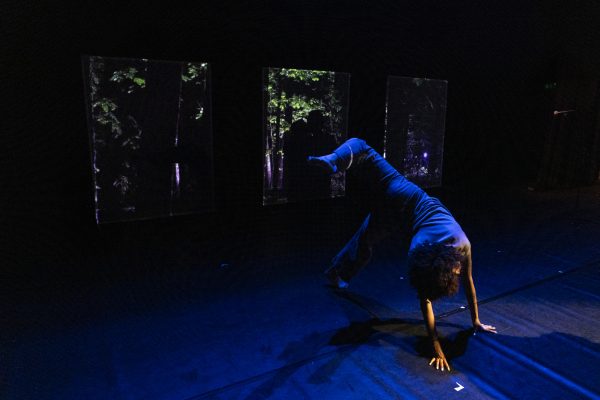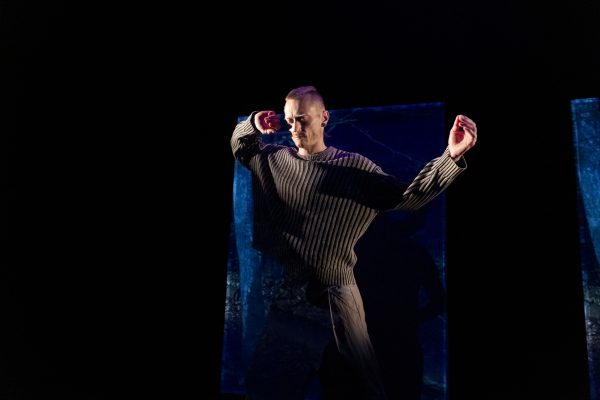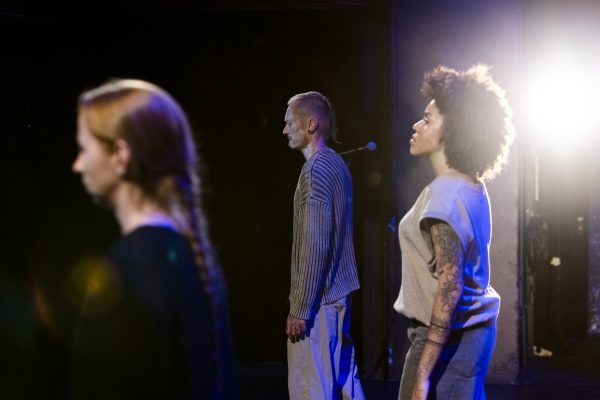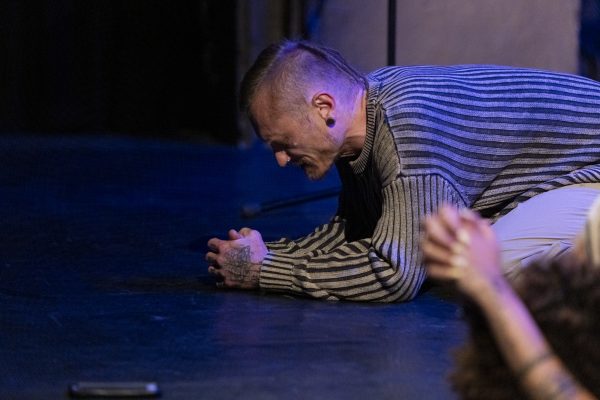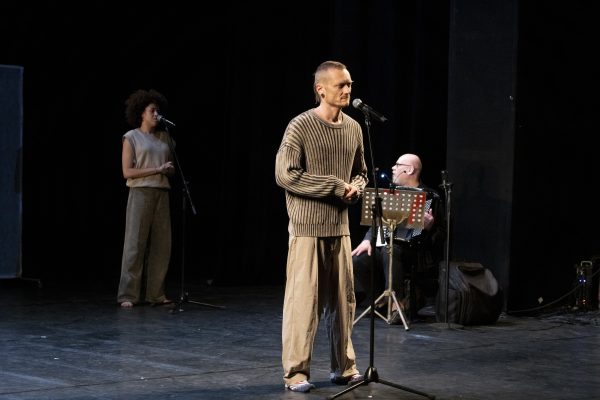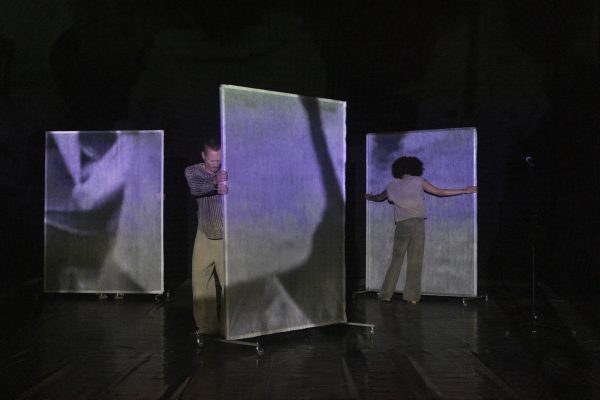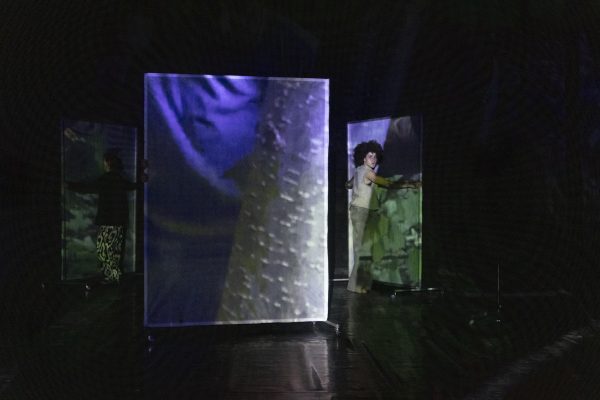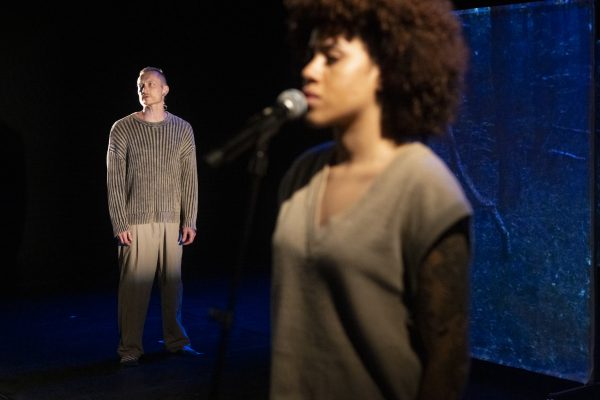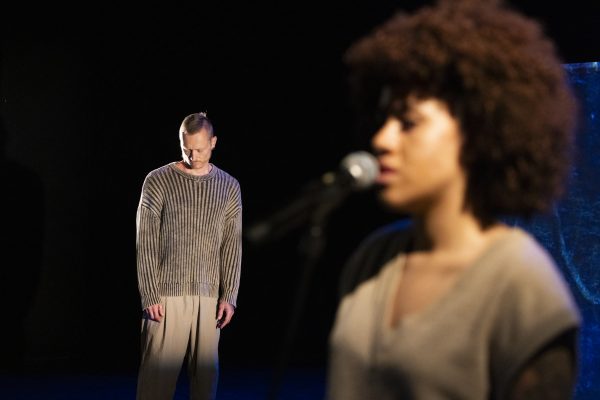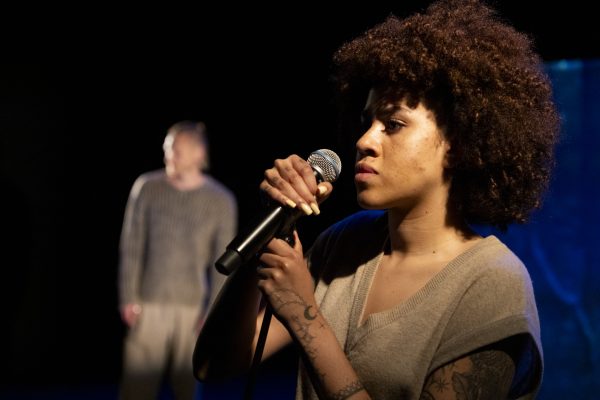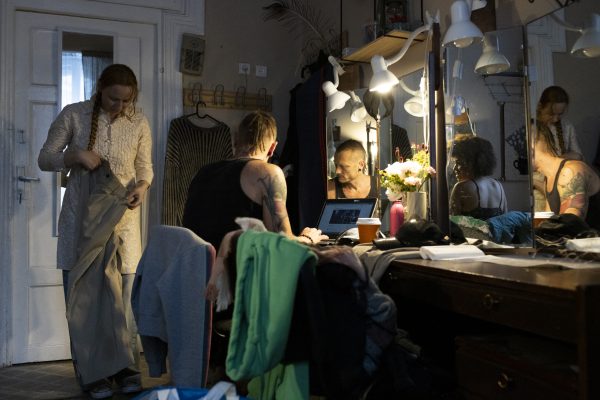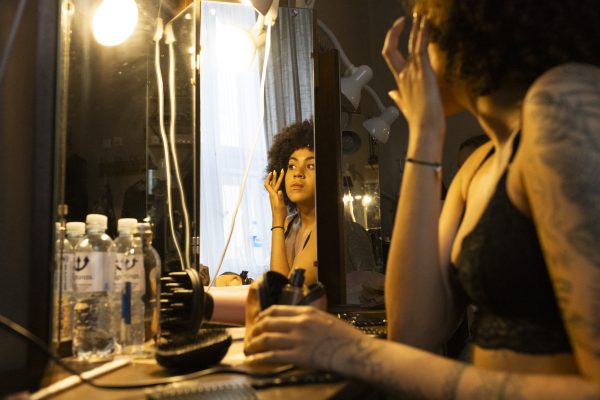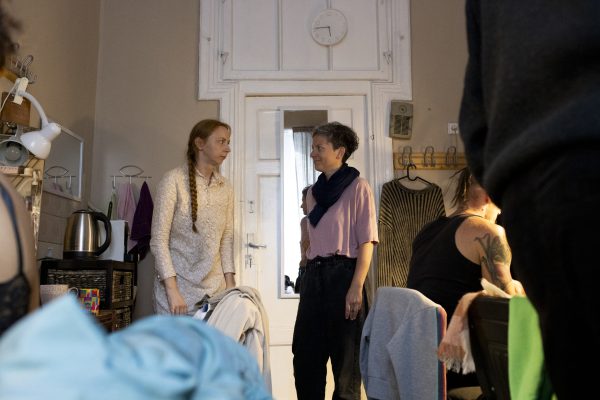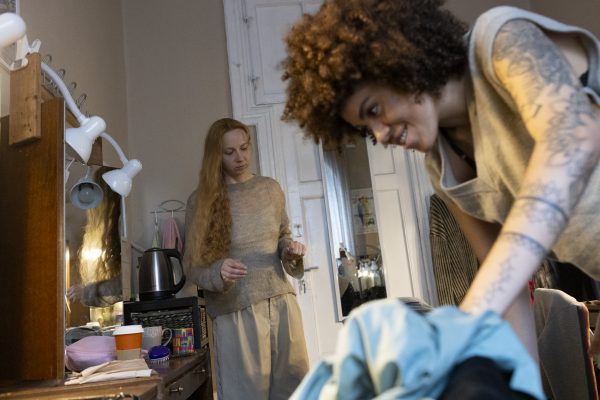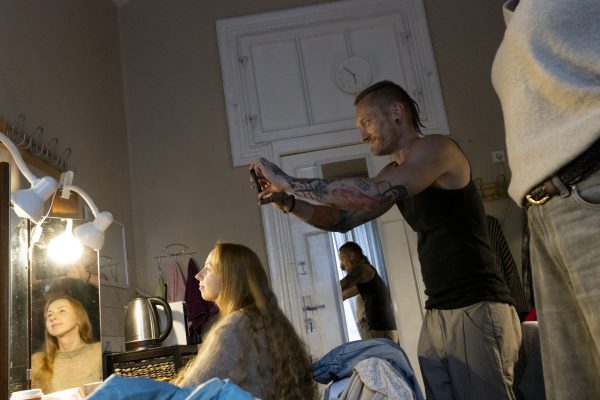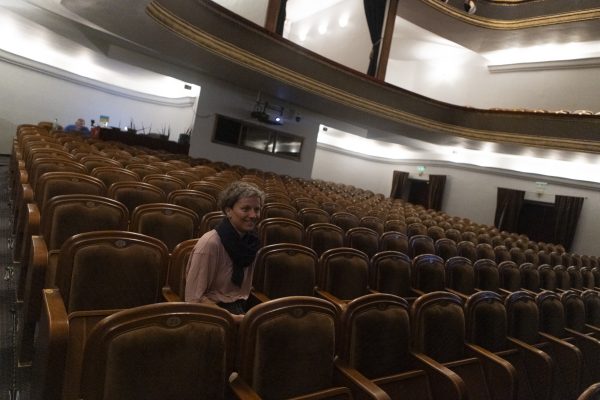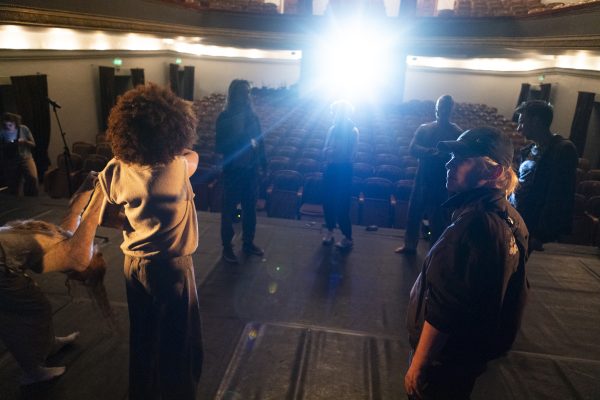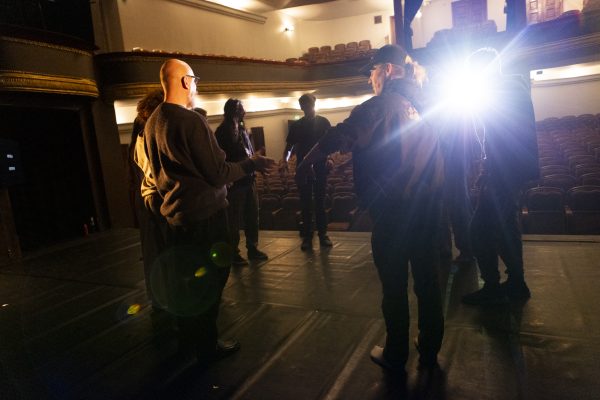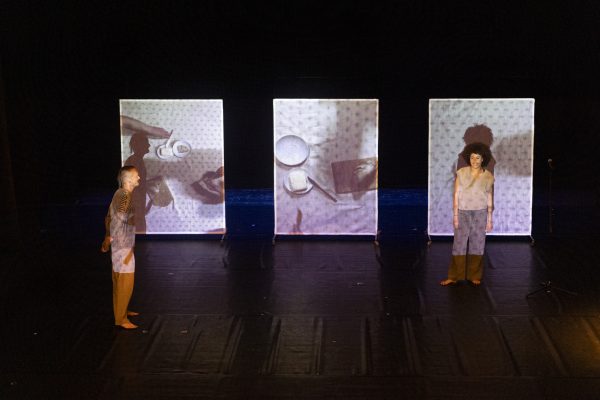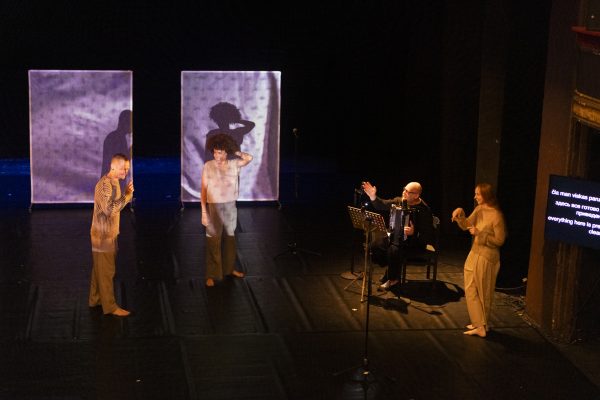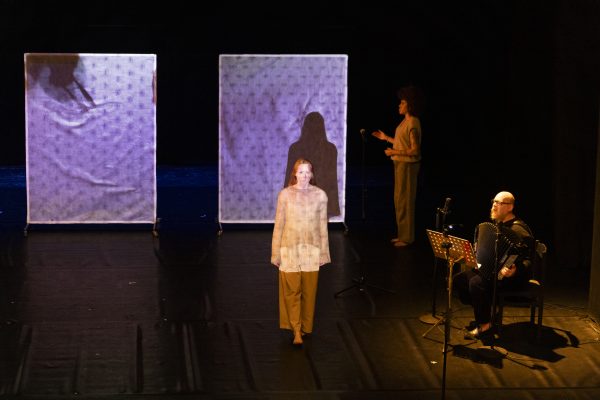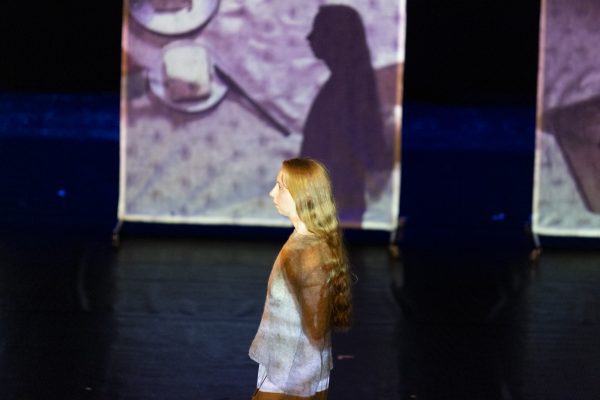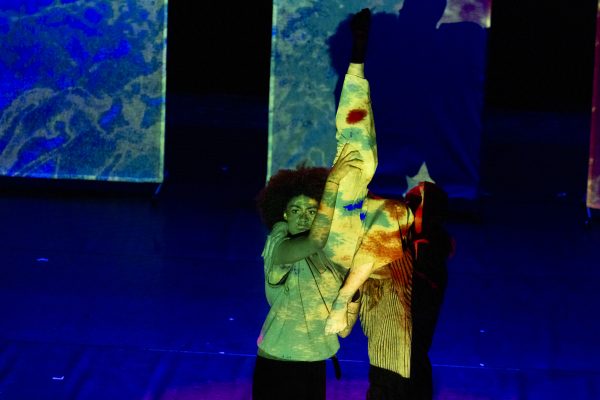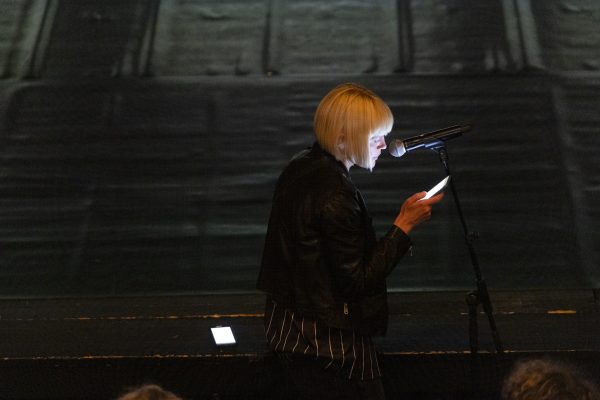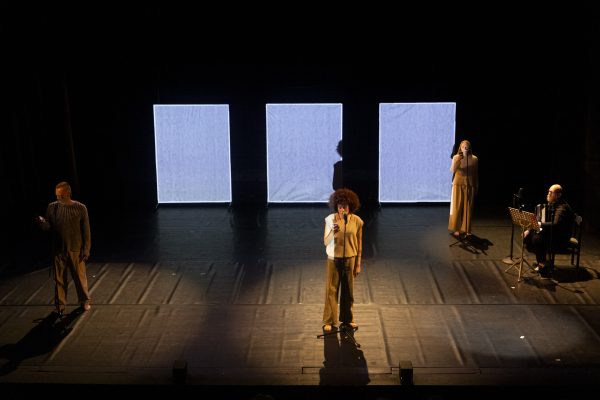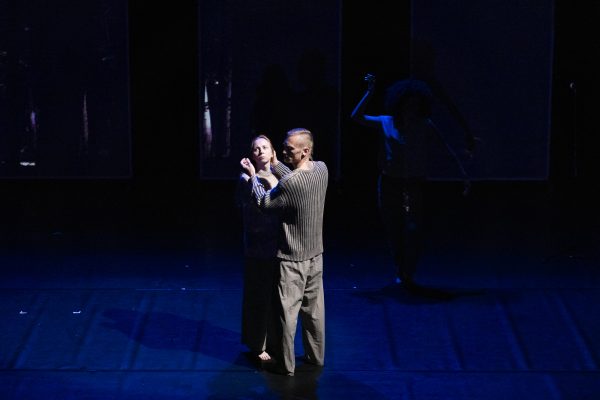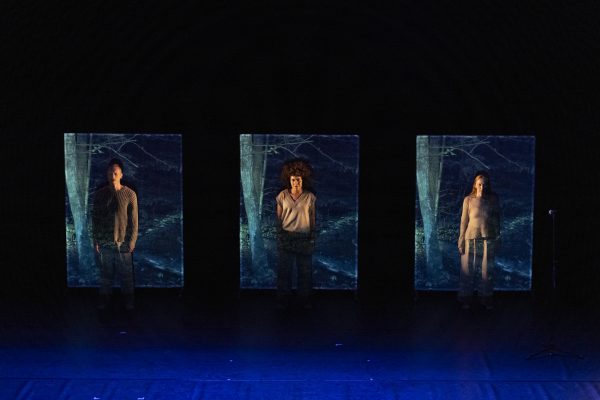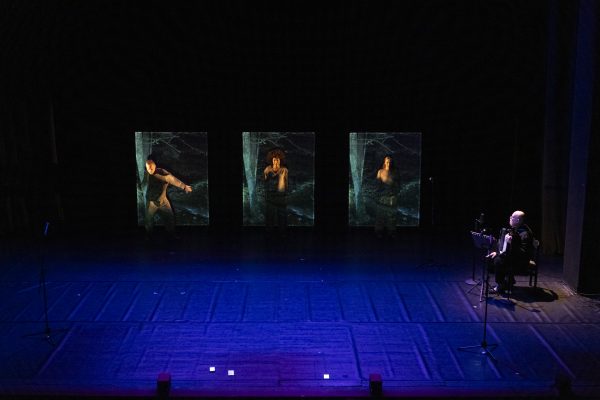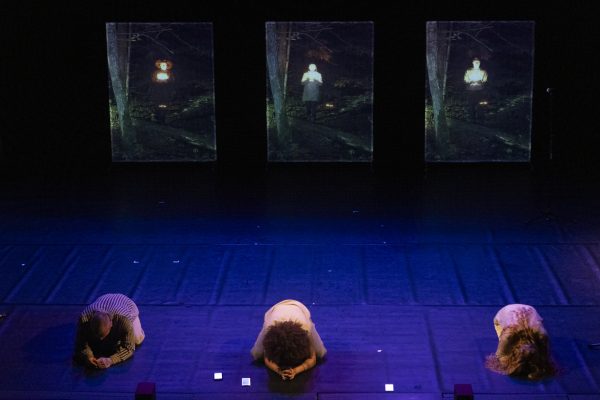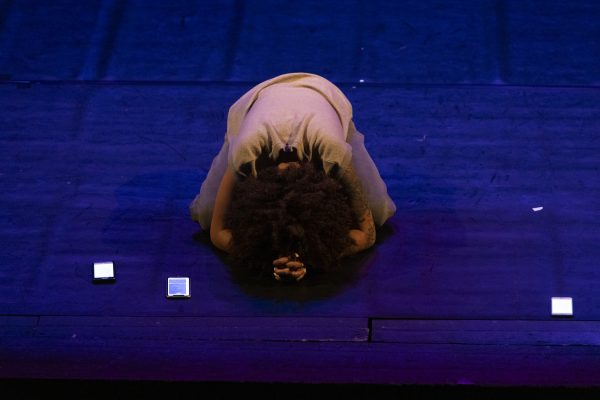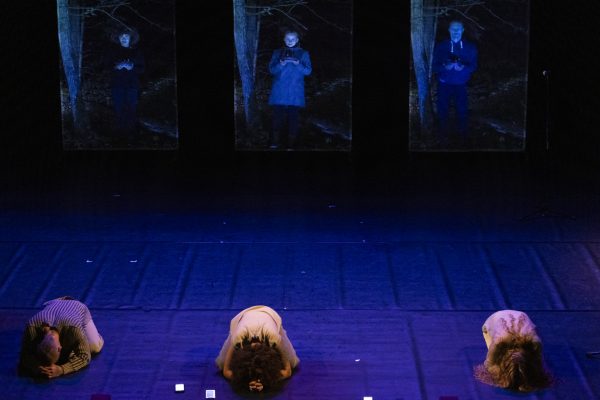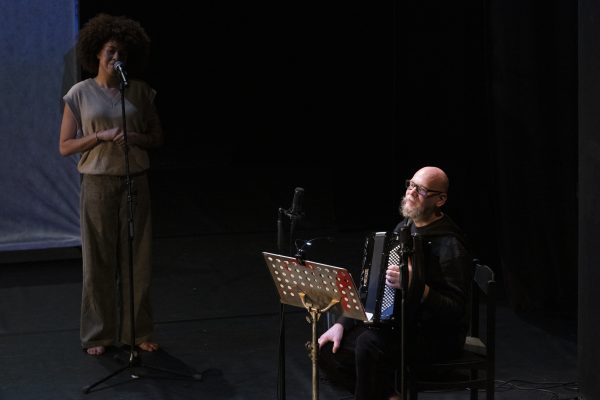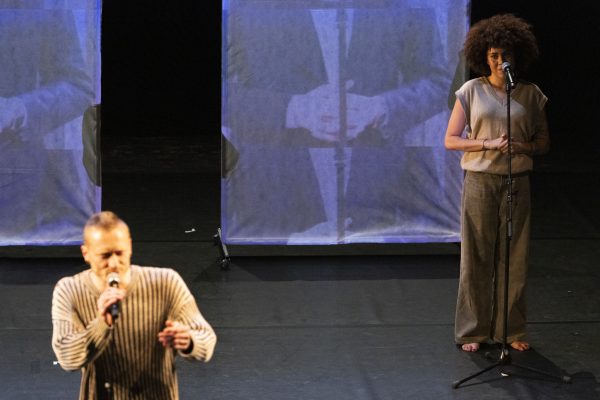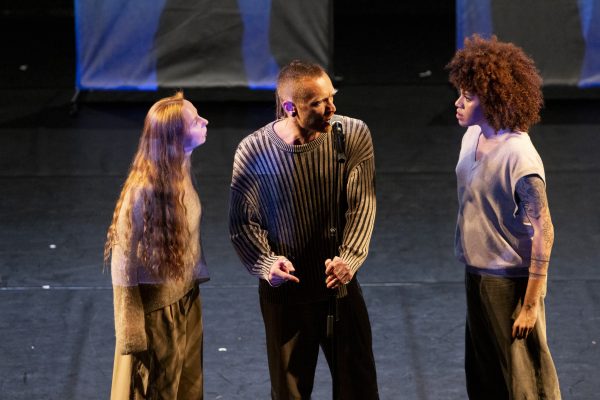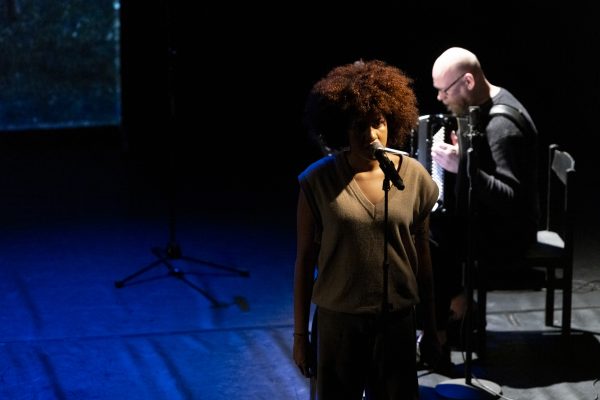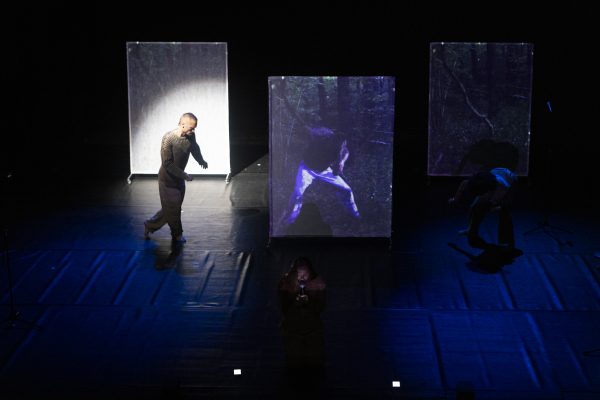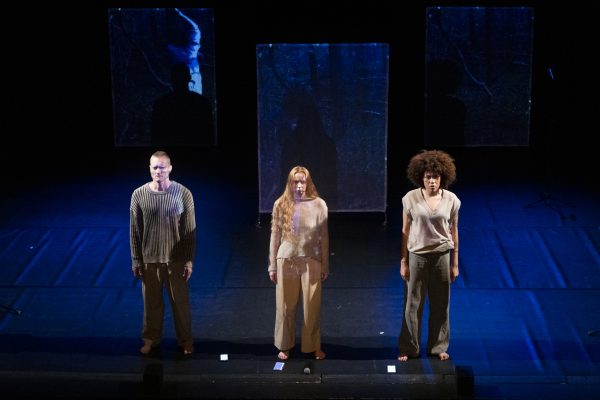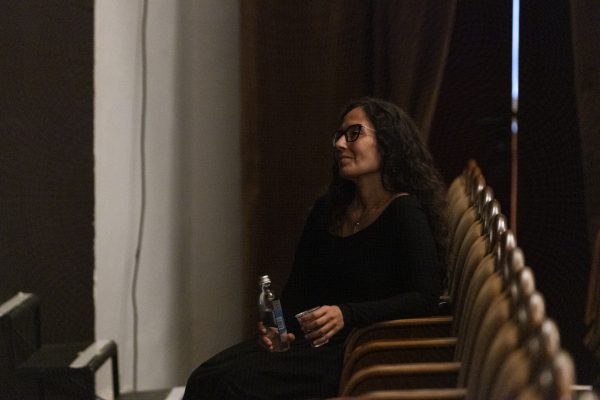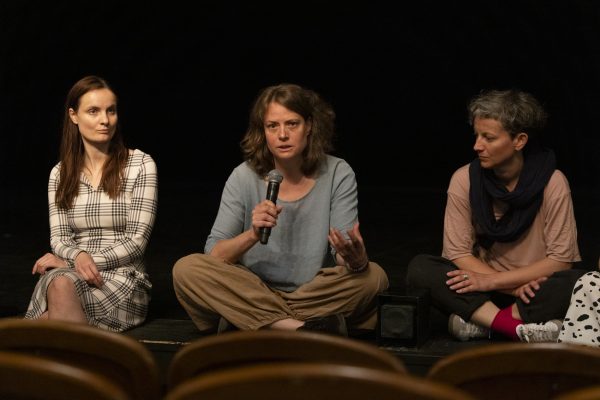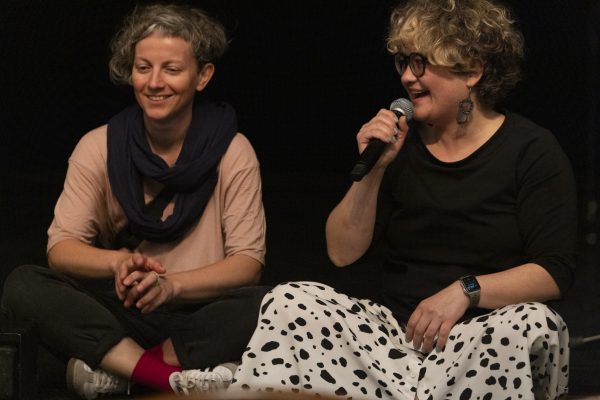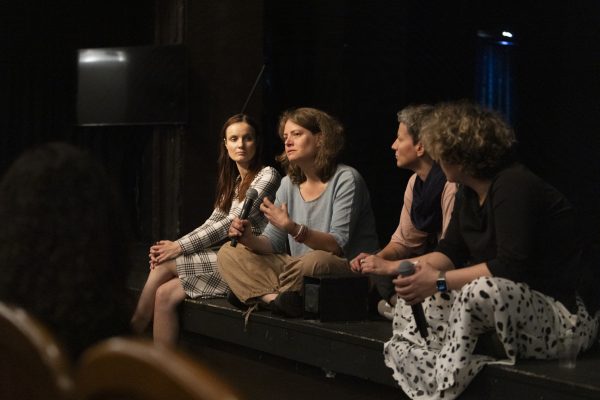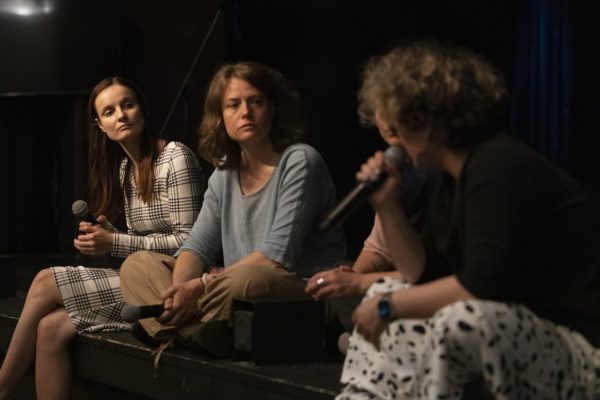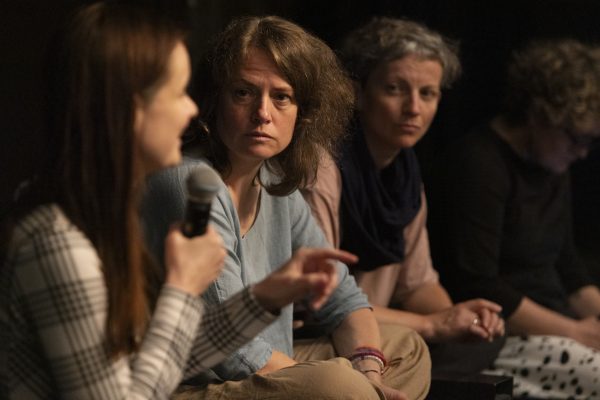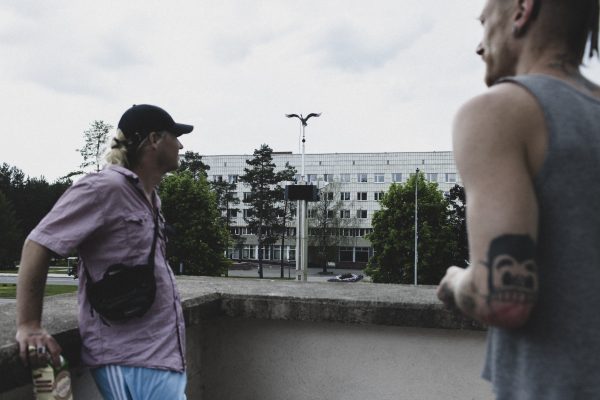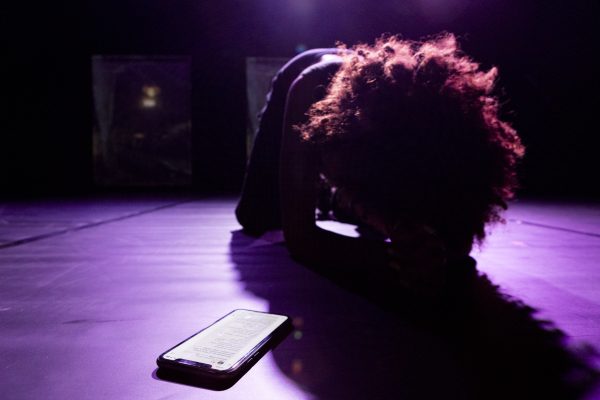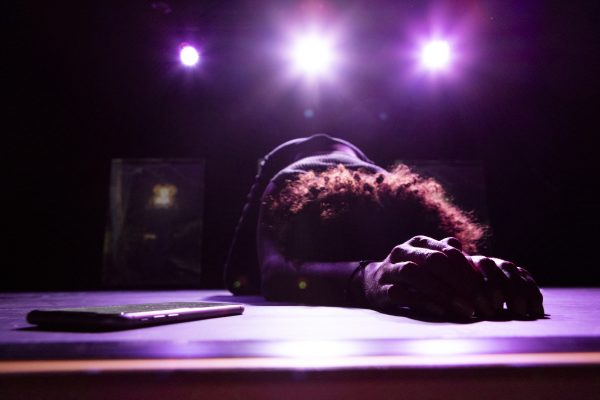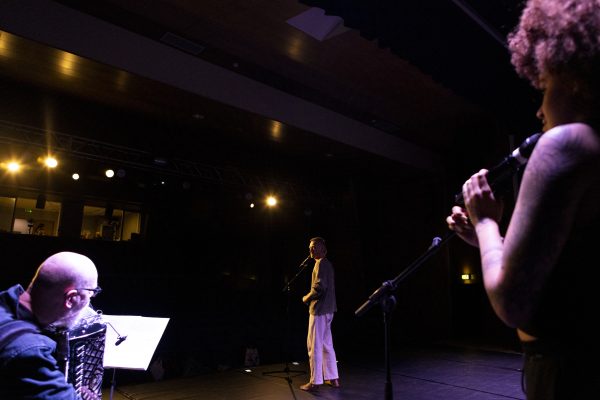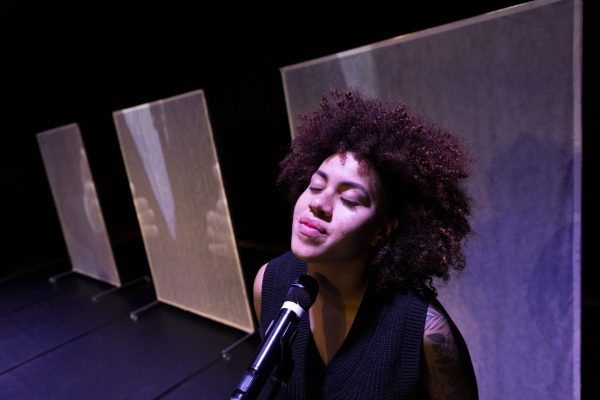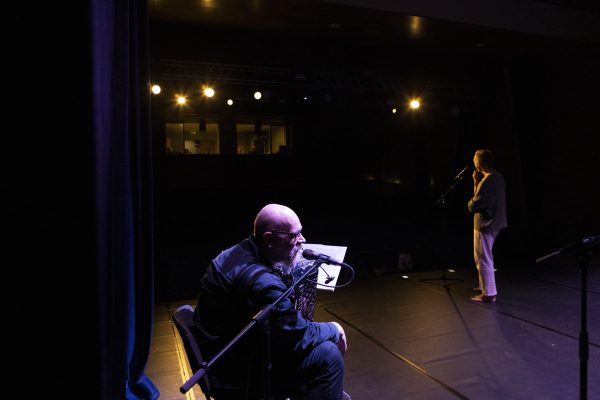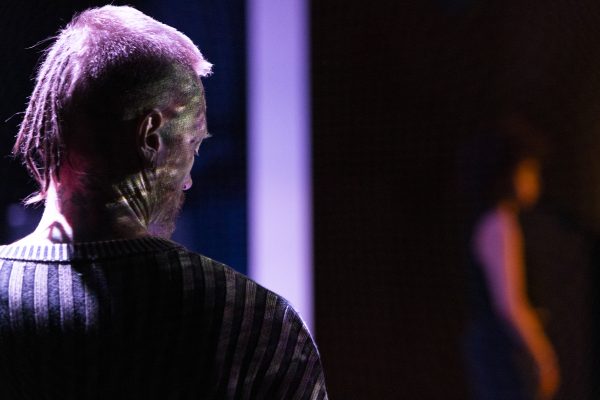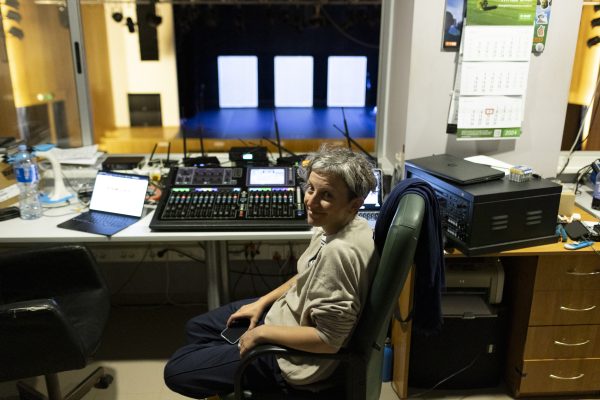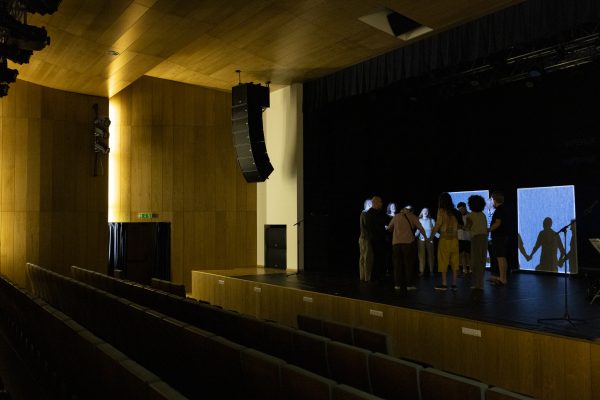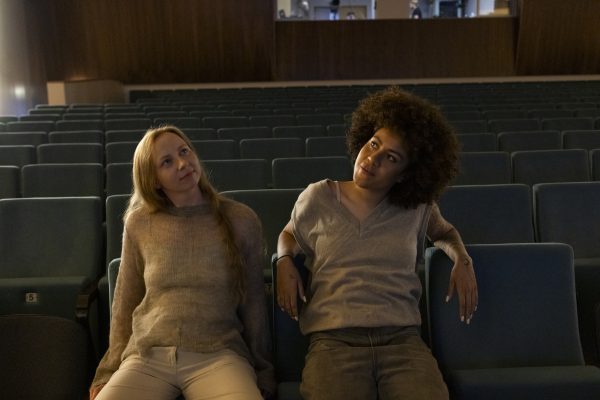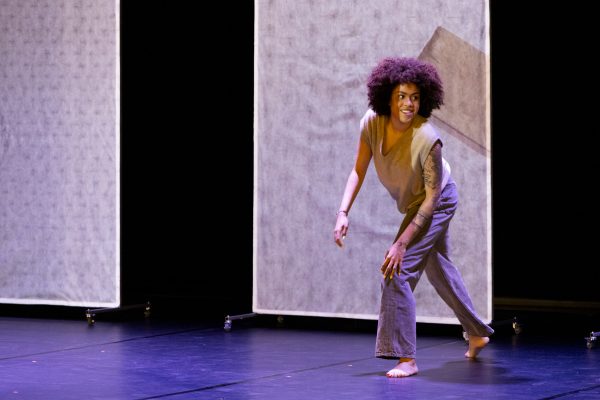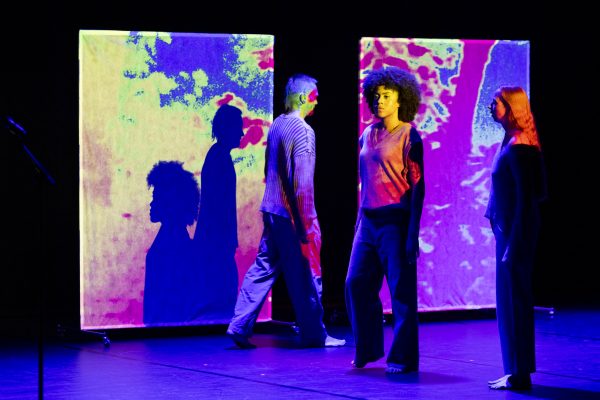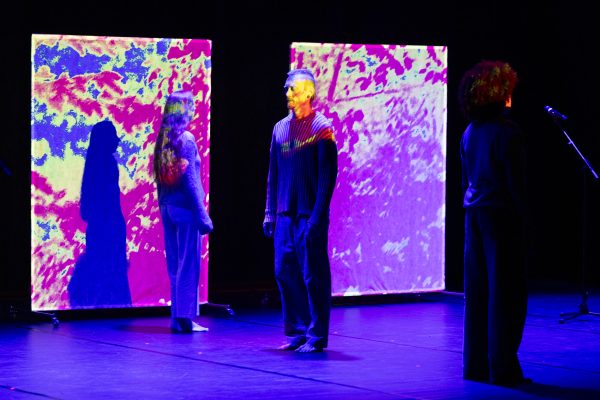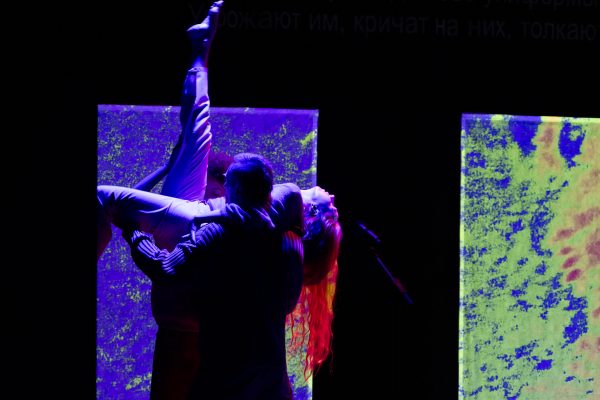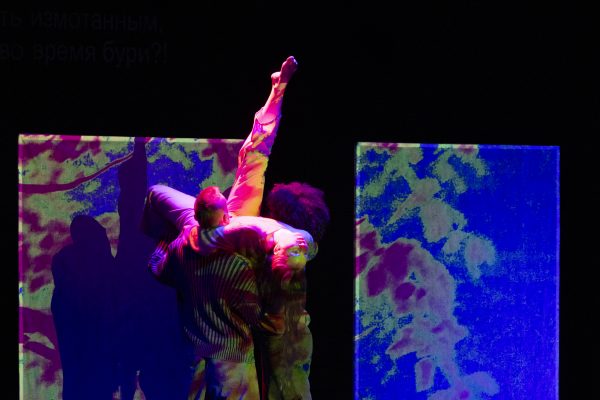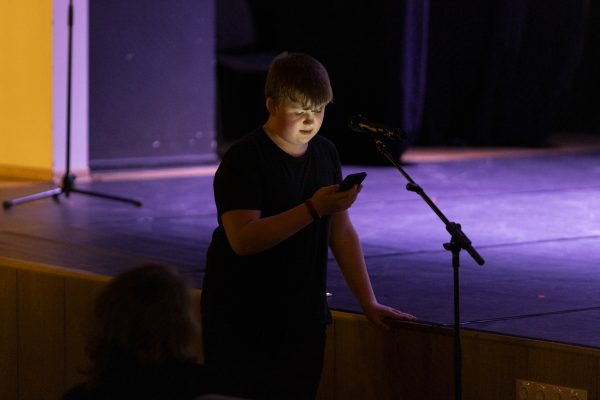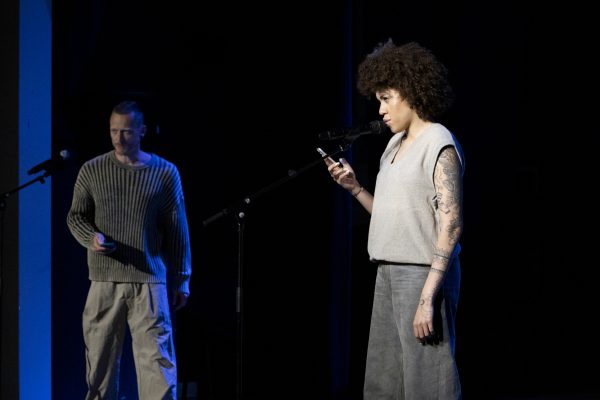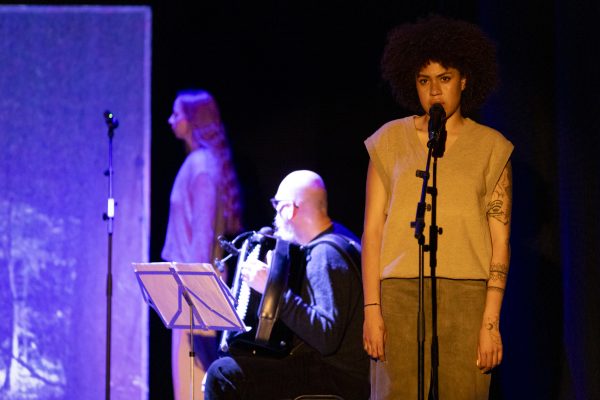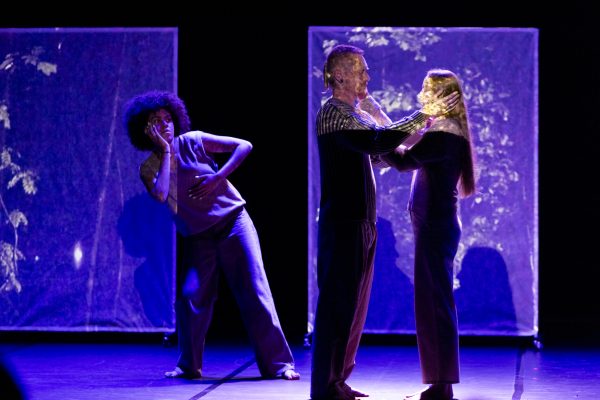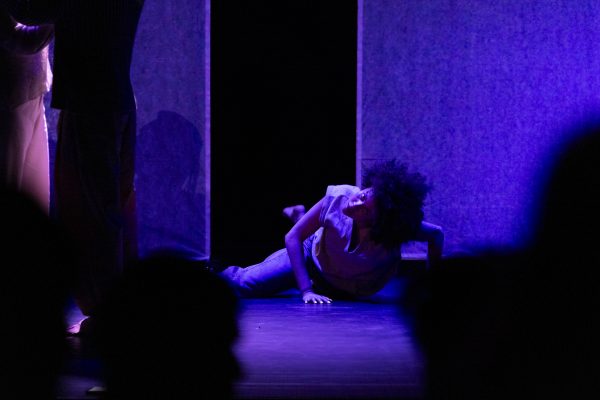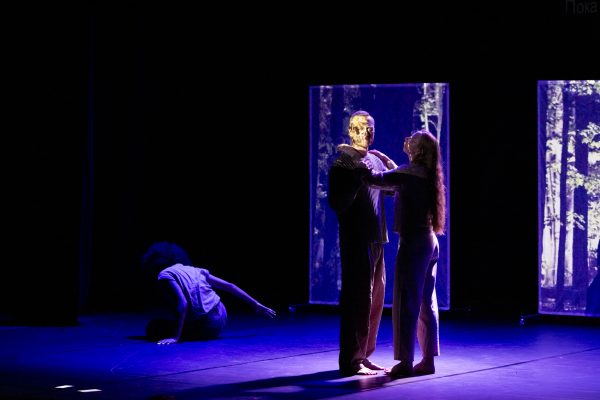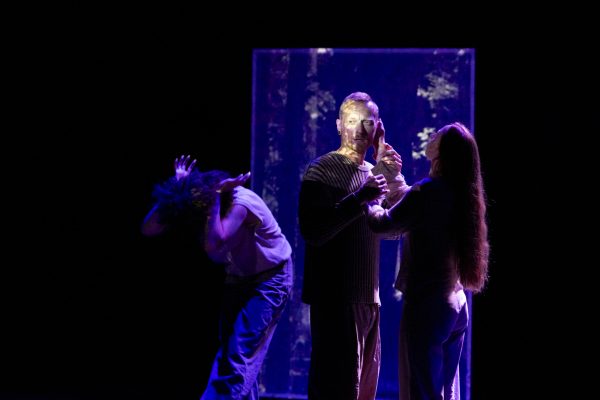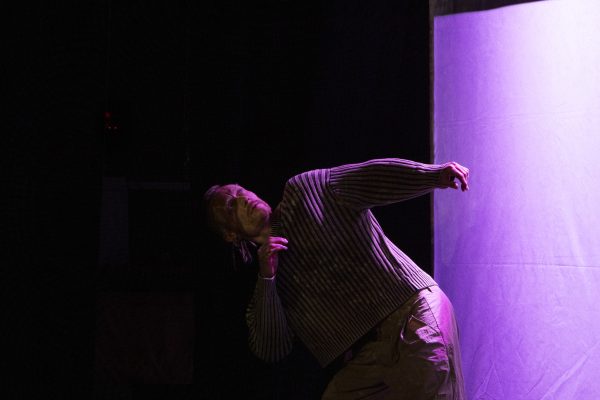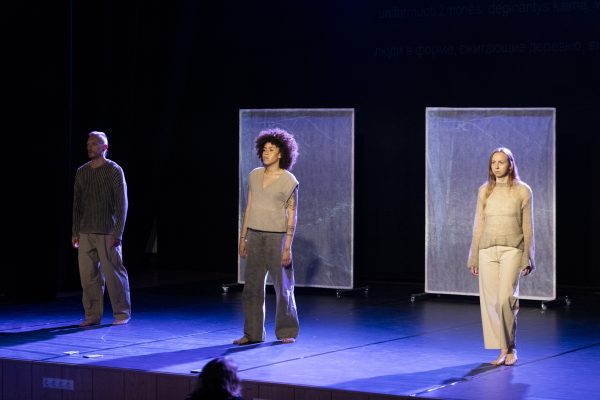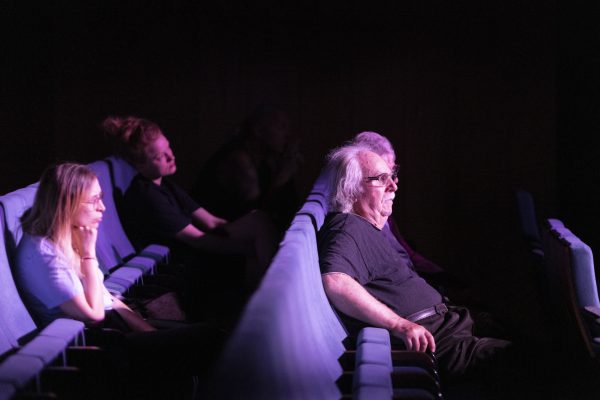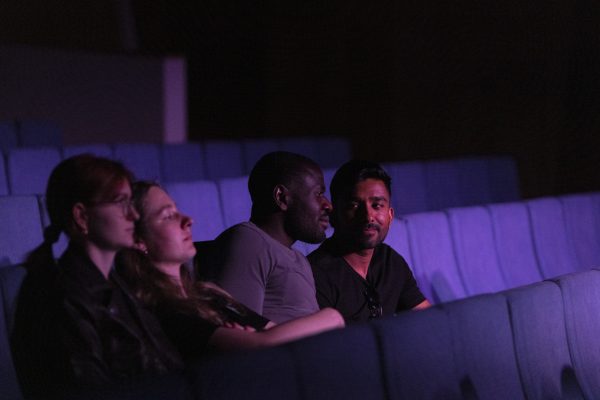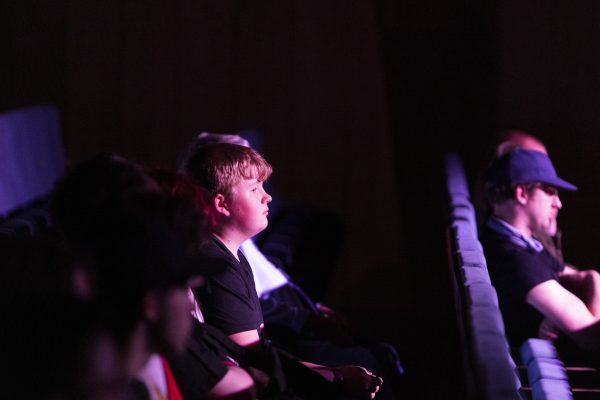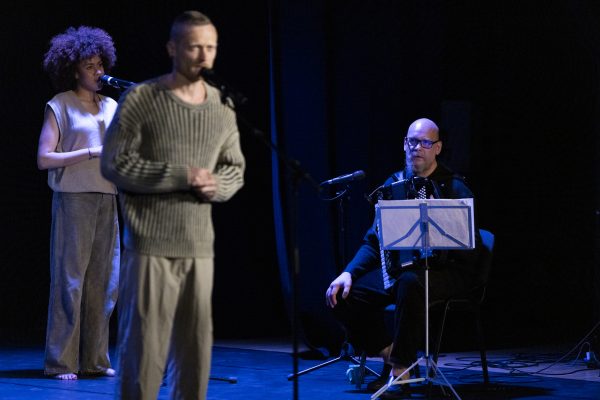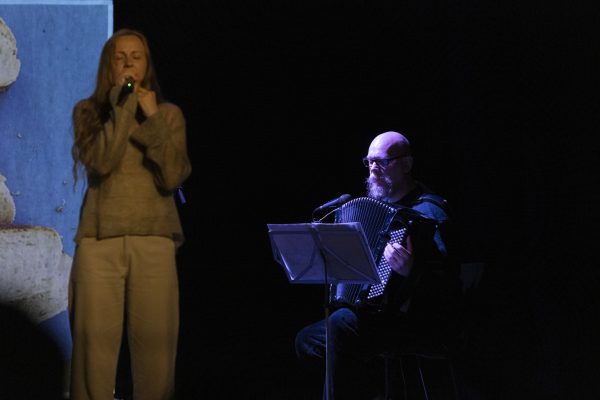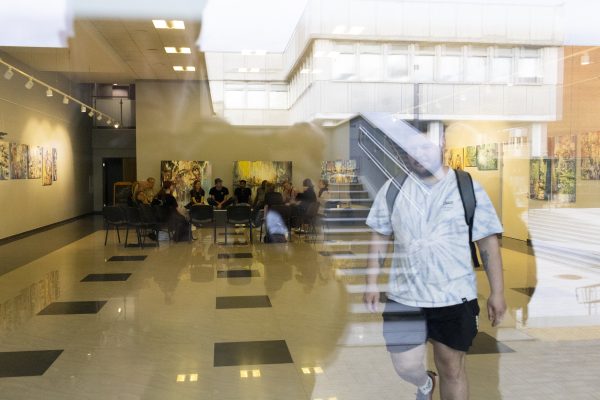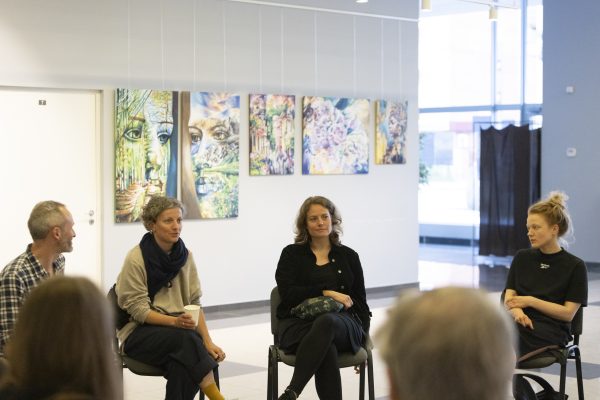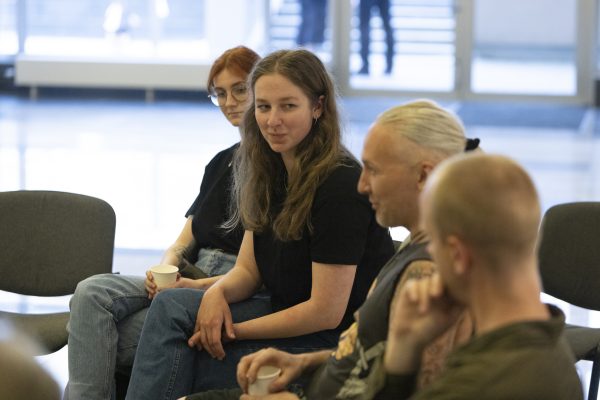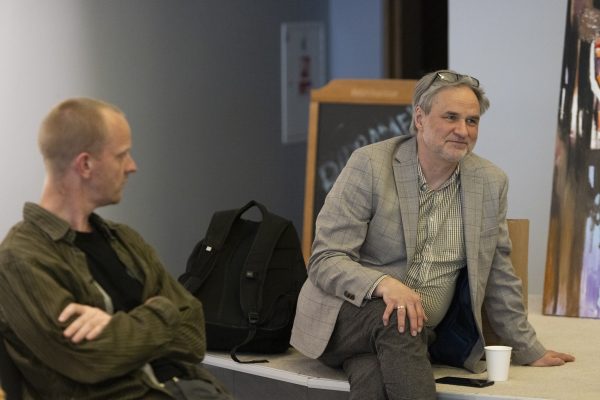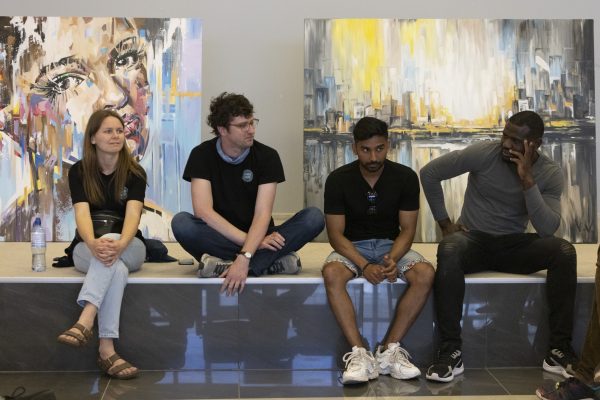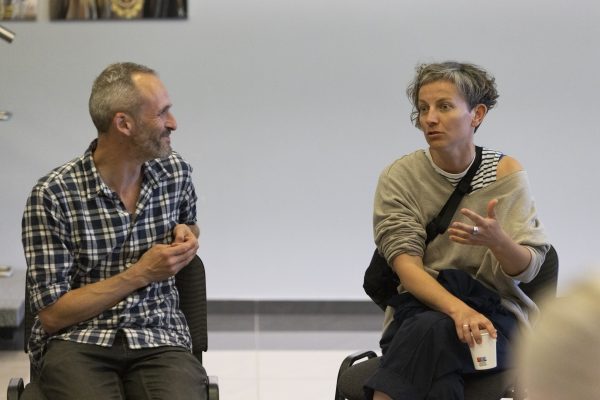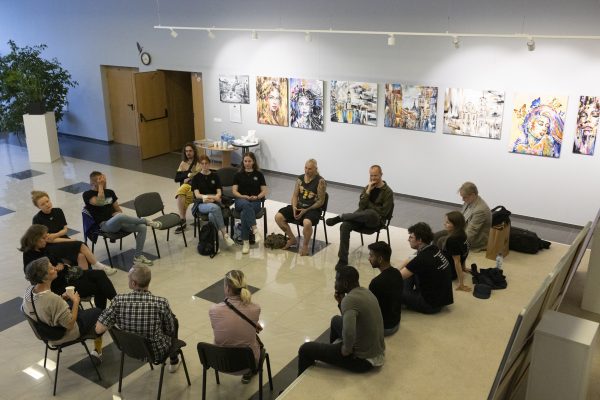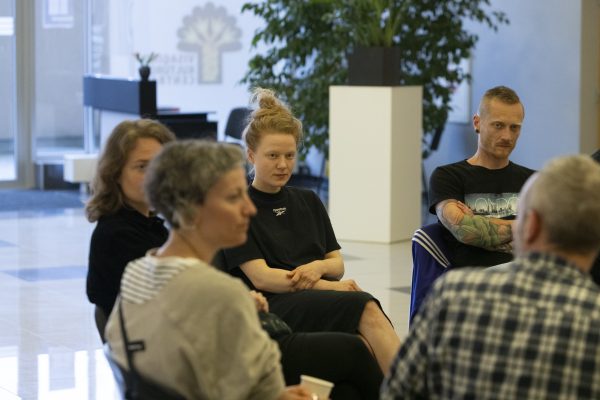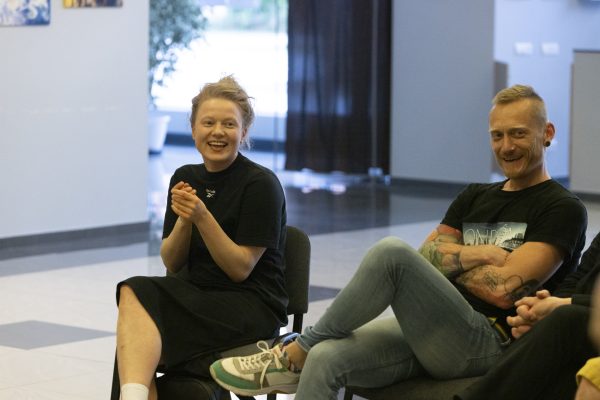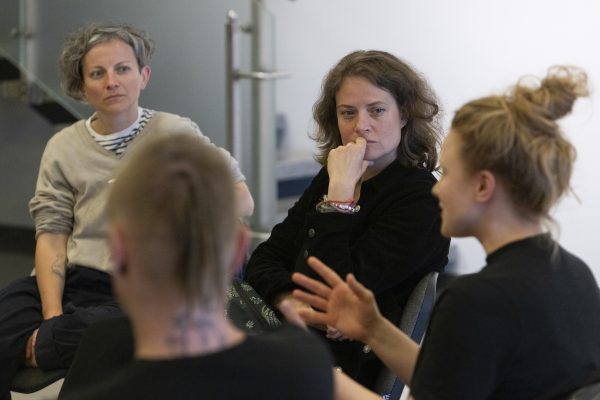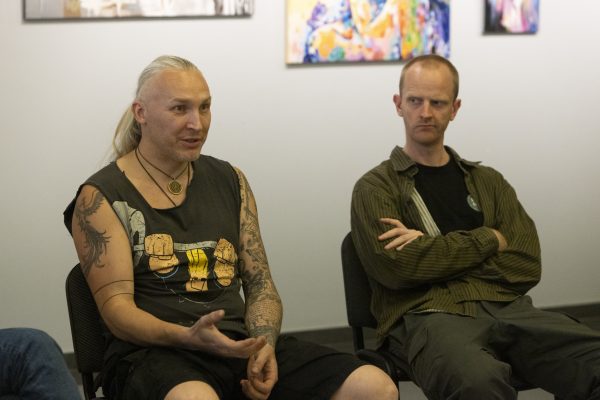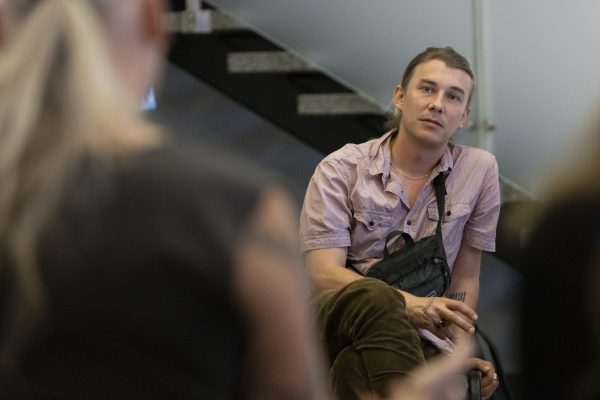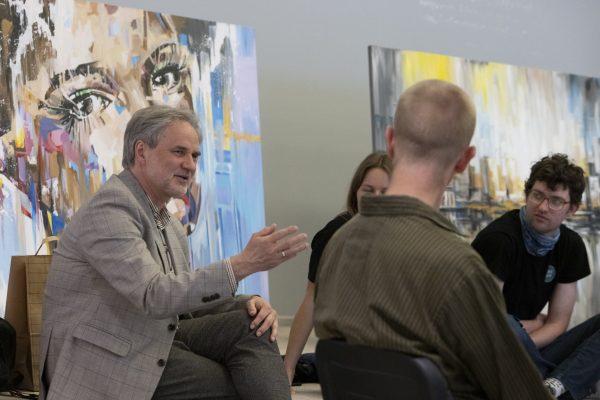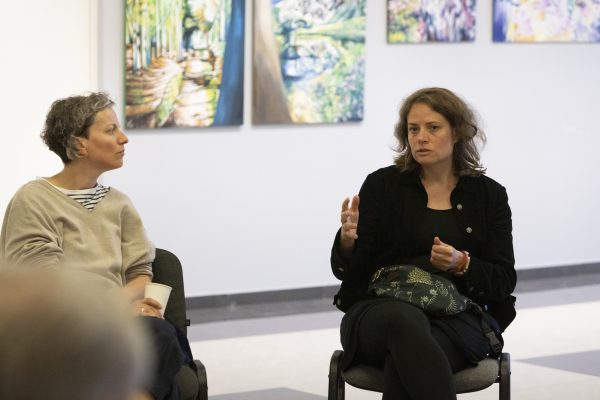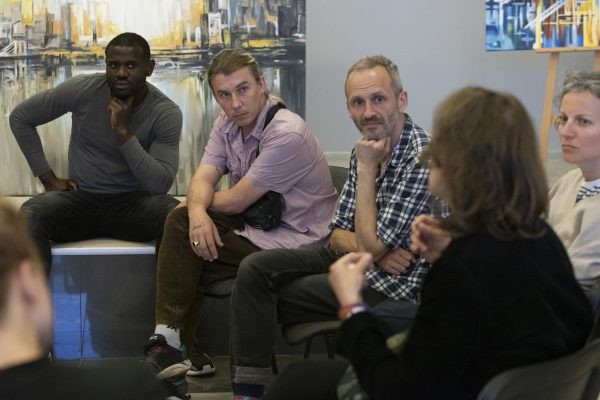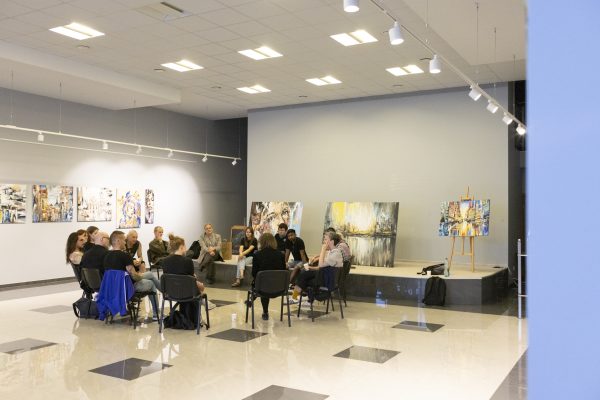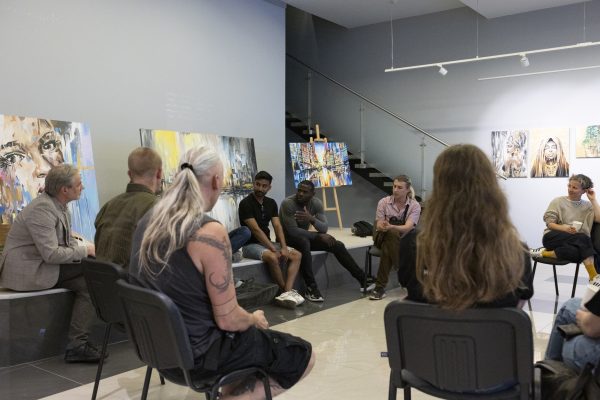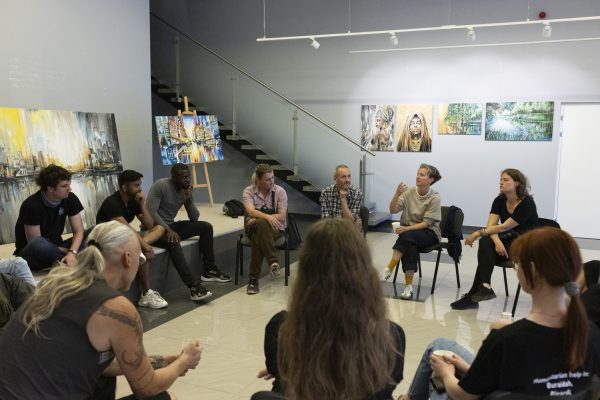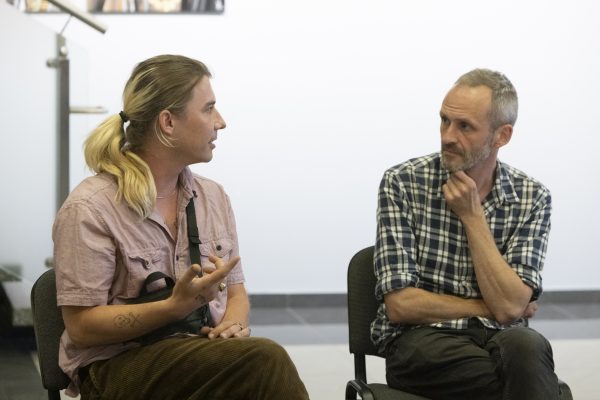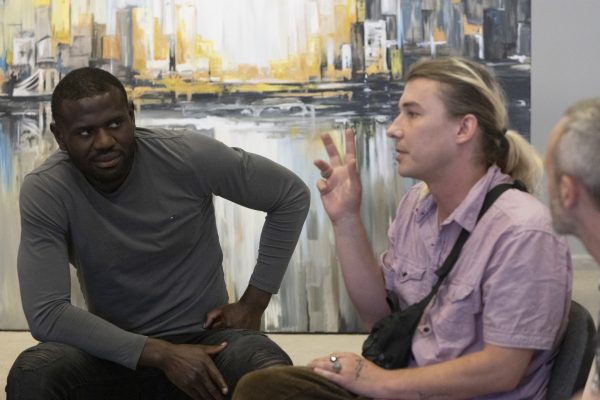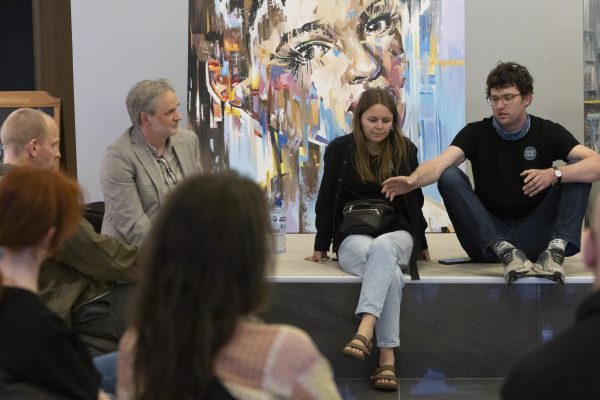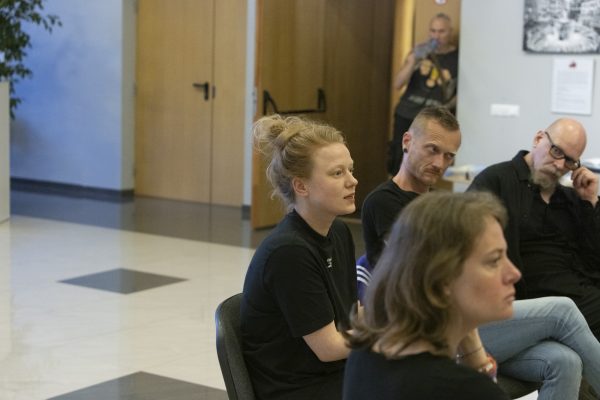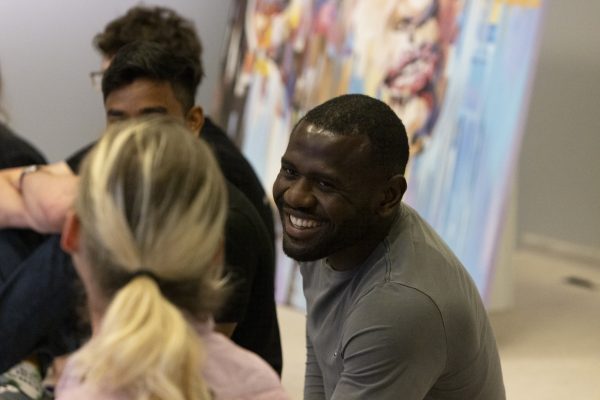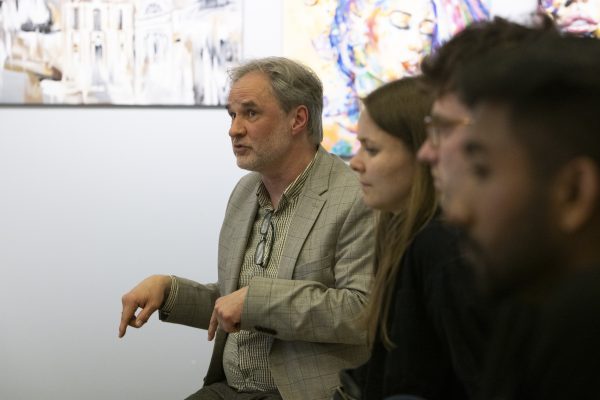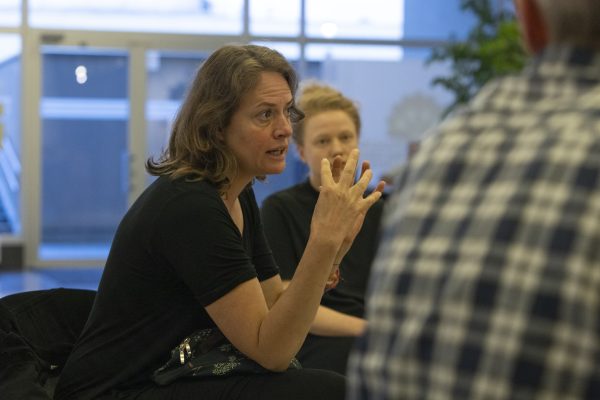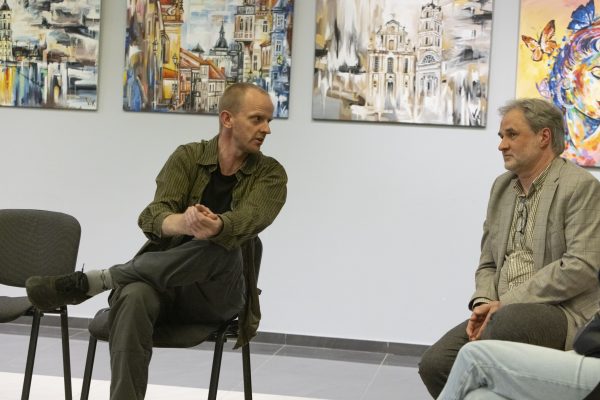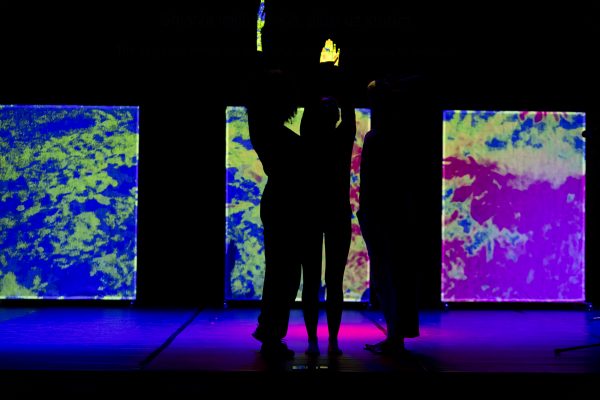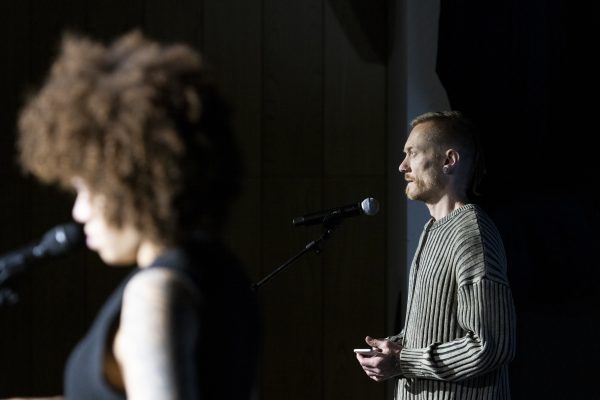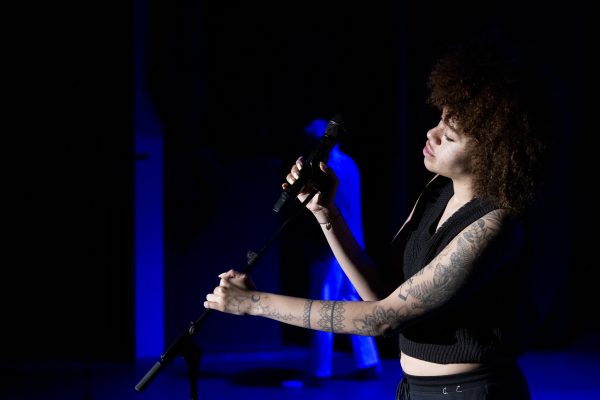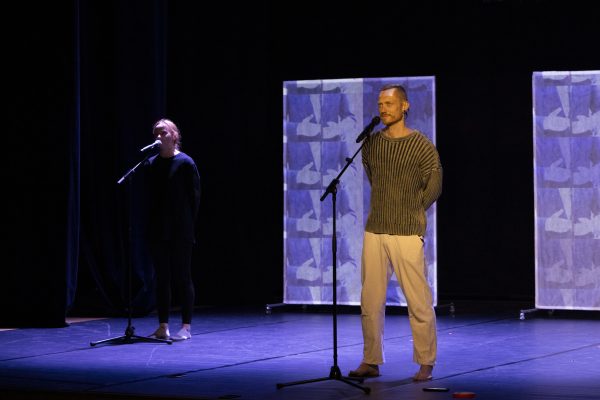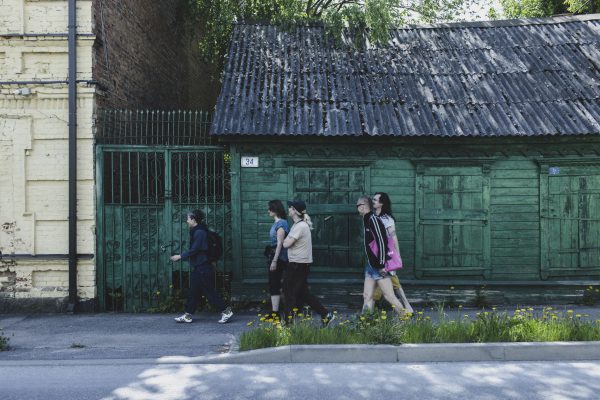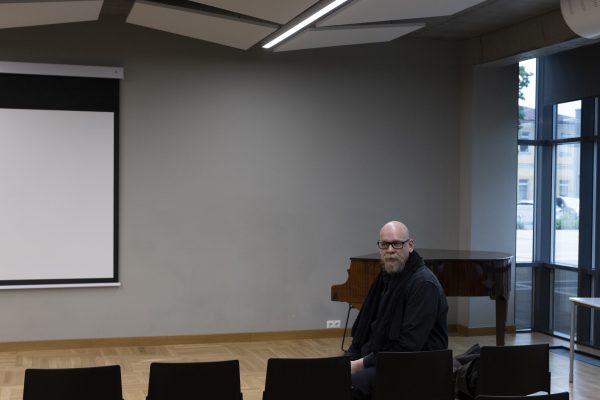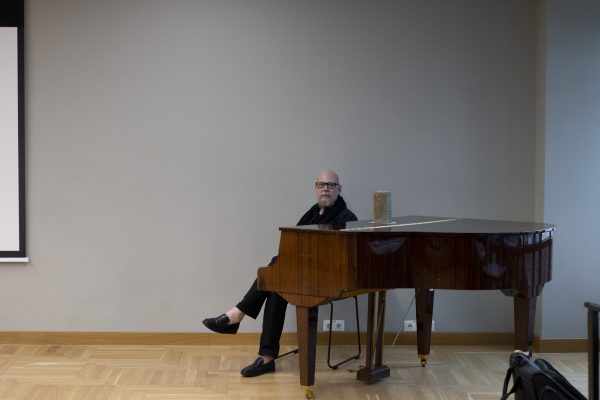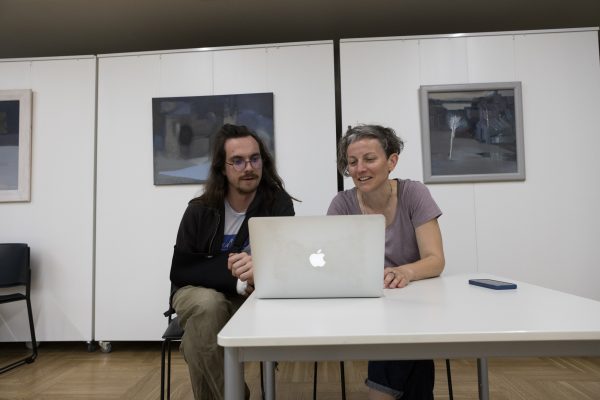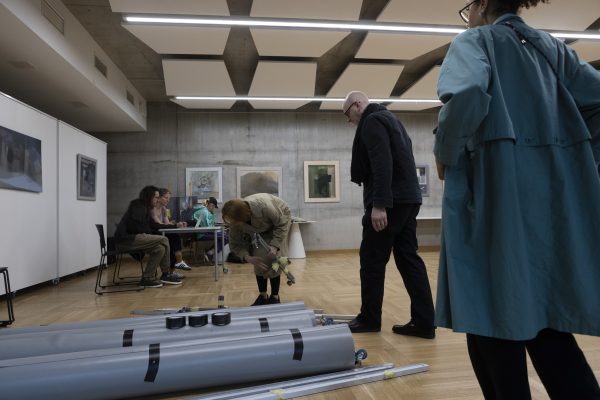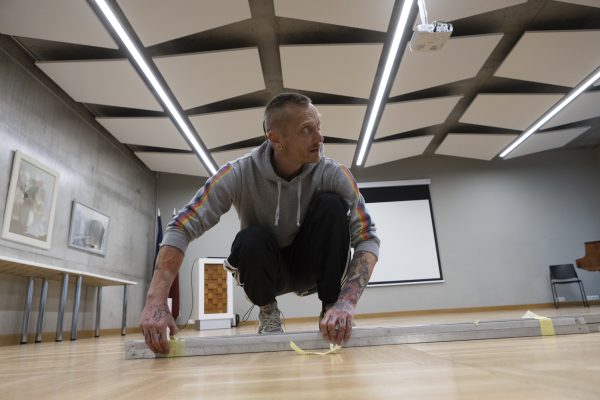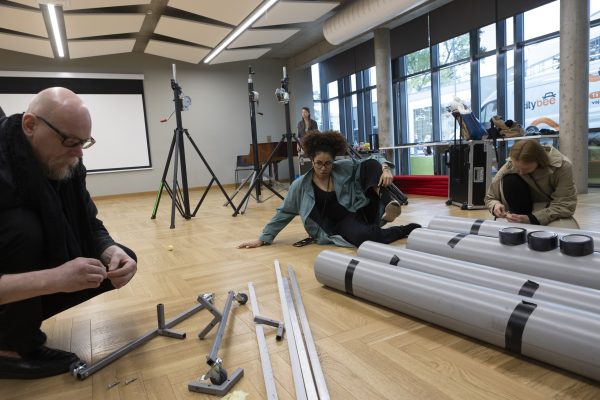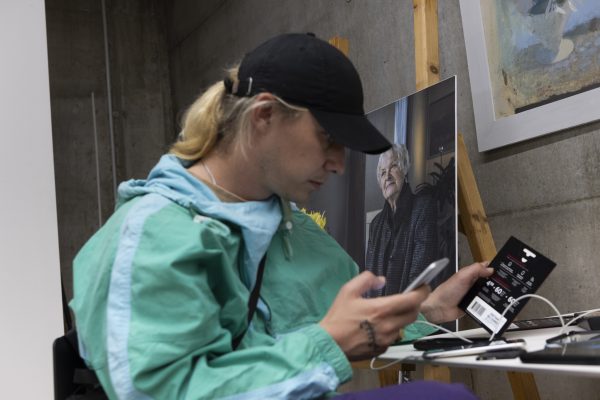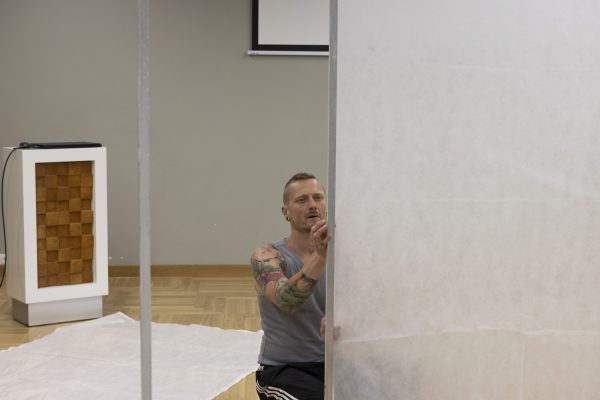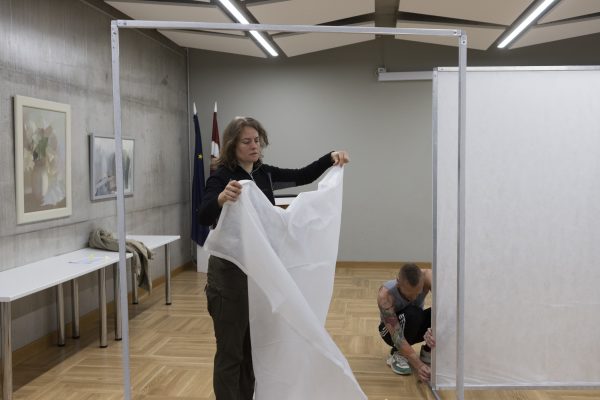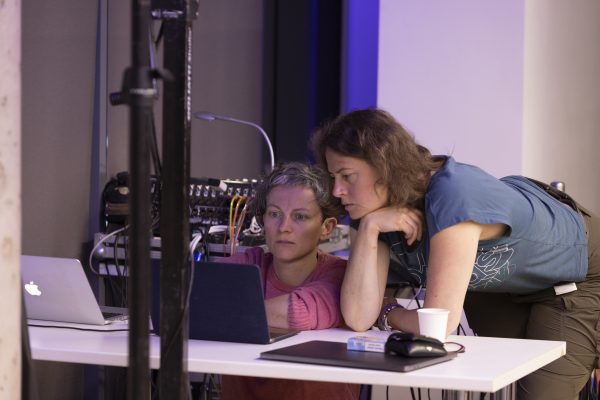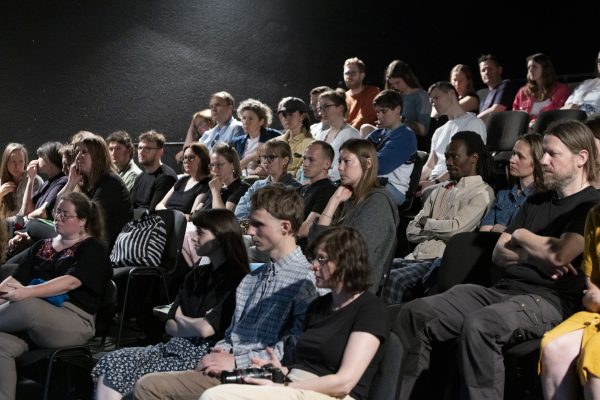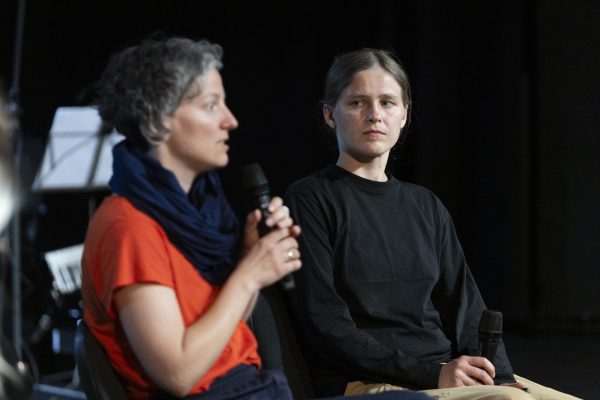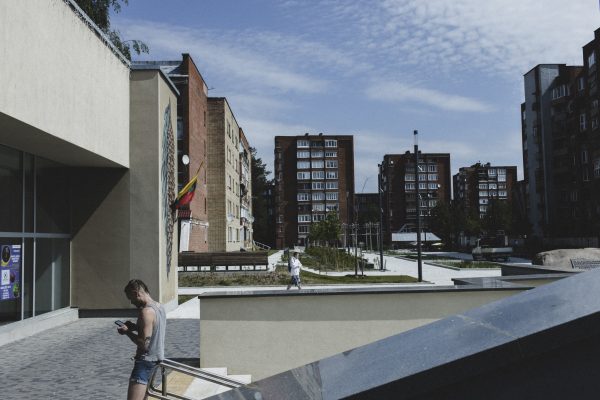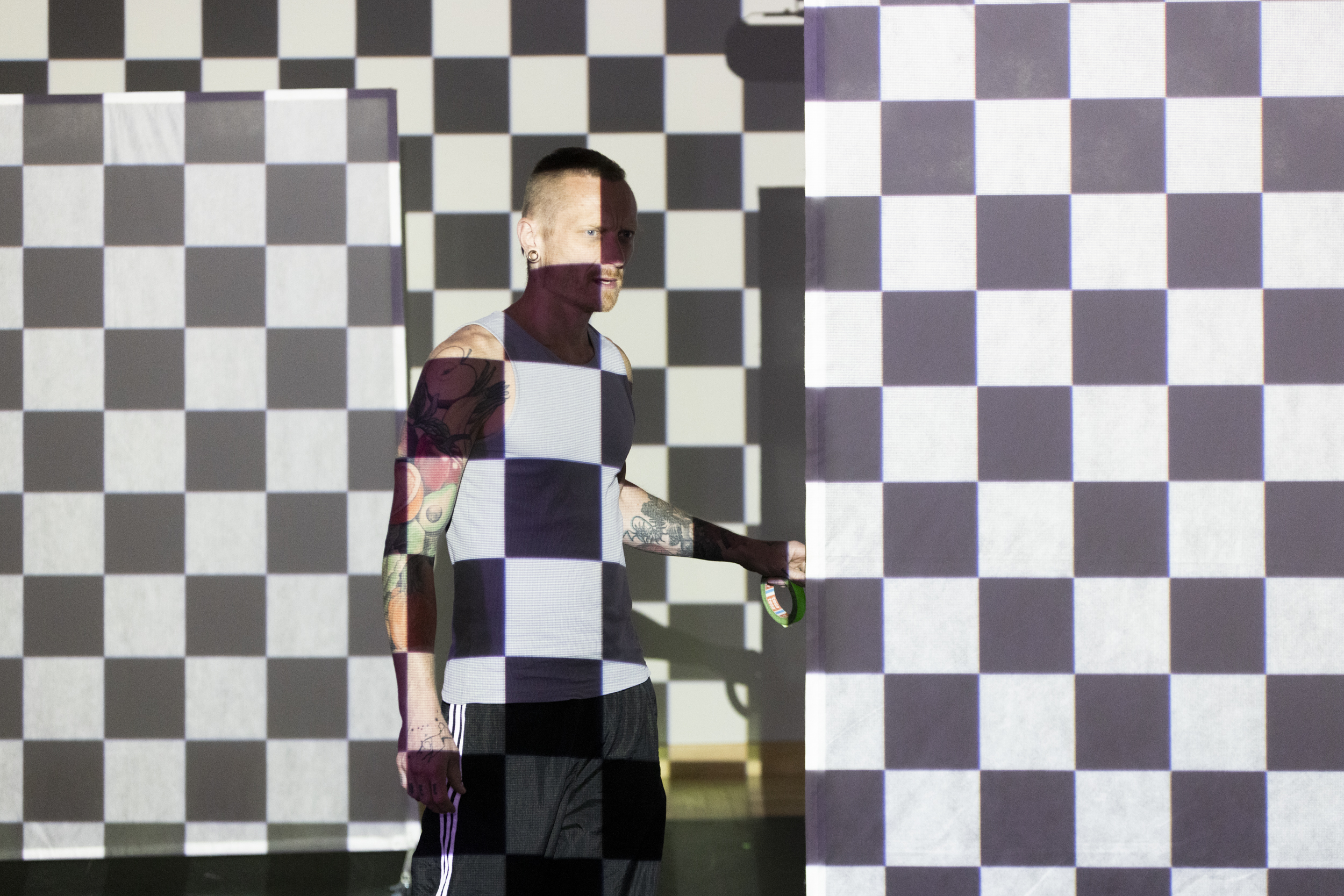
Imperium Tour:- nine people, four performances, 2000 km. We set out at nine o’clock in the morning from Warsaw, the director Alicja, people in acting roles Oma, Olia and Łukasz, Alexey the accordionist, and Adrien, responsible for visualisation/video. Maciej and Ola, activists in the Grupa Granica (Border Group), who described the situation on the Poland-Belarus border after each performance. It is precisely the situation of people on the road, the Bialowieza Forest crossing, that is the experience at the core of the play Imperium.
We head towards Latvia to Daugavpils, the second largest city after Riga. We have to drive through the whole of Lithuania, and then Latvia. We are in the European Union, and we do not even notice that we have crossed the border; it is so easy for us, we are not stopped or inspected by anyone.
The only thing that changes is the landscape. We travel a seemingly empty road, surrounded by meadows and forest, and pass one lake and river after another; it is beautiful.
The people on the trip are not here by chance. Our roads have crossed in the past and we have worked together before, in activism. We met some of them in the forest, taking them humanitarian aid. The forest stretches out behind us, and remains within us.
Leva and Niks are waiting for us in Daugavpils. They will take care of our organisational and technical matters in Latvia.
We do the first performance at a school. This is not a typical school. it is very modern, with laboratories that we find very impressive. The hall in which we will perform the play is a kind of gallery and conference room.
It takes us an entire day to prepare the area, set up the stage floor, set up the lights, video, and sound. The first rehearsal.
We have time to see the city, pop in to an orthodox church, synagogue, and church. We go to see the Polish Culture Centre, and invite people to come to the performance.
Of course we are a little worried whether anyone will come to see Imperium. Migration and refugees are not easy and popular subjects. The room is full, there are approximately 50 people. We begin.
“I am dreaming about a forest. I close my eyes and feel moss beneath my feet. I can’t see trees and bushes any more, only hiding places. I can’t hear birds, but sounds capable of muffling my footsteps.”
The performance is rich in sounds, movement, and light. It is not clear and straightforward, and that is its strength. I see people in the audience wiping their eyes, and people in the audience who have been through that and had that experience.
After the performance, everyone stays, wanting to know more; it is an opportunity to talk to activists. Ola and Maciej are joined by the Latvian activist Leva and Lithuanian activist Mantautas, active in the Group Sienos Grupe. The meeting is chaired by Anna of We Want to Help Refugees, who comes from Latvia.
Now we are not talking in metaphors, we are talking about the abuses committed by the uniformed services, institutional abuse, the difficulties faced by activists, and the ways in which they are repressed.
Riga is only 230 km away from Daugavpils. We feel the difference, we see it in the architecture, we feel how close we are to Scandinavia, it has a metropolitan feel. It can be heard in the language, more than half of the population are Latvian, the complete opposite to Daugavpils, where more than half are Russian.
We go to Riga for two days. On the first day, Ola talks about the situation in the border area following the Latvian première of Agnieszka Holland’s film Zielona Granica (Green Border).
On the second day, we perform Imperium at Dirty Deal Teatro. This time it is in a theatre, and the difference is felt immediately, I can see that by looking at the actors. A space that resembles the Teatr Powszechny, where the Warsaw première of Imperium was held.
We begin the rehearsal. Oma, Łukasz, Olia and Alexey have come on to the stage, Alicja and Adrien are in the director’s box, everyone is in their place, in the theatre, feeling at home. It goes smoothly, and two hours later, everything is set up and we can have a rest, because we are doing the performance in the evening.
Two film-makers have been with us since we began our trip, and for this reason, immediately after the rehearsal, they record interviews with Alicja, Łukasz, Ola, and Maciej.
The girls are also at the evening performance with their camera. Maybe it will be possible to capture the tension moments before, the excitement, how it will go this time, the slight worry about whether people will come, and who.
Like in Daugavpils, there is a full house. The audience stay for the meeting, and this time, as a guest, Alicja, the director of Imperium, joins Ola and Maciej.
This is the end of the adventure in Latvia, tomorrow we set off for Vilnius. Only a meeting in the evening remains, and this time it will be off the record. We want to still spend some time with Leva, Niks, with Leva and Anna, with the girls from the Batory Foundation, who have come to Latvia specially. It is pleasant, funny, and safe. “It is safe” is the last line of the performance. It is safe.
Vilnius, we have been here twice. The first day is free time, with no rehearsals or performing, a little bit of time free from each other, we make space. Maciej goes to a museum. Alicja, Łukasz and Adrien stroll around the city. Alexey meets up with friends. Alicja, Łukasz, and I drop into TVP Vilnius to talk about the show and describe the situation on the border. TVP Vilnius was opened four years ago, a small studio on the top floor of the Polish Institute.
In the evening, we meet up with Mantautus at a vege pub. We will come back here repeatedly.
Before we perform in Vilnius, we have another city – Visaginas. It is located close to the Belarus border (10km) and Latvia border (15 km) and seven kilometres from a disused nuclear power station like Chernobyl. Shutting down that power station was one of the conditions for Lithuania to join the European Union.
A small town by a lake, former Soviet apartment blocks surrounded by pines. In the central square, there is a tall monument with a crane in flight and beneath it a display showing a Geiger counter, which once displayed the current level of radiation in the city.
It is no surprise that we are performing at the Culture Centre in this city, a raised stage, large auditorium, a director’s room that is hard to reach in the array of corridors.
In the town, there is something along the lines of an alternative culture centre, a safe place for kids, four floors of crazy ideas, a room concealing a collection of tens of thousands of little figures, or a relaxation room, with a wide variety of bells and dream catchers hanging from the ceiling. Alex, who created this extraordinary place a number of years ago, shows us around and tells us about it.
Alex came to the evening performance with kids and teenagers with whom, together, they form the alternative space called Tochka.
There is a point during the performance when people in the audience read messages on telephones lying on the stage. These are messages that come to aid groups from people on the road: “Group from Syria. A woman who is four months pregnant, a man and two children. The woman is getting stomach pains and is bleeding. They need personal hygiene items, dry clothes, water, and food. Shoes of sizes 38, 32, 33, 45.”
In Visaginas, it was in fact Alex and a few of “his kids” that ventured on to the stage to read the messages.
It was here that we had the most difficult discussion after the performance. Up until that time, we had never encountered an open and in fact hostile approach to taking in refugees. It was only here, during the meeting, that the director of the Culture Centre (in which we had performed Imperium only an hour before) expressed a view that we found surprising.
We are strangers to Visaginas; we do not understand the rhythm of this town, we find it a little interesting, but we also want to leave it now. We wash away our feelings in the lake, and then we also take a drive to the disused nuclear power station. We wonder how life in the town was organised when it was still in operation.
We return to Vilnius. We return to the theatre, with a capital “T”. The last performance is held in the Old Theatre of Vilnius. A return to a “real” stage, gilded balconies, heavy, black curtains, all of this has a wonderful effect, even making it hard to breathe. It is after the performance in this theatre that Alexey says “here we really created art, and not only a thought-provoking play!”
The Empire Tour was implemented as part of the regional initiative Empire in the Baltic States, funded by Iceland, Liechtenstein and Norway from the EEA Funds under the Active Citizens Fund – National, Active Citizens Fund – Regional, Active Citizens Fund – Lithuania, Active Citizens Fund – Latvia.
Text: Agata Kubis
Photo: Agata Kubis
The report was published on Onet.pl
